A monograph on the work of Jiří Kovanda, on which Markéta Stará writes about the book’s production: “(Kovanda’s) aim to dissolve the line between art and life brings him to manipulate familiar objects from the outside world and incorporate them into works that, outside of the gallery context (and sometimes even within it), could easily be overlooked. This near invisibility resonates with Kovanda’s efforts to escape artistic trends and avoid any reductive framing. Although it could be argued that his oeuvre hovers on the border between kitsch and high aesthetics, his goal is to test the possibility of their equivalence and thus to deconstruct the distinction between art objects and utilitarian objects. It is exactly this endeavor that brought Kovanda to use the occasion of the publication of a catalogue to transform the book into an art object and make it the subject of his latest exhibition.”
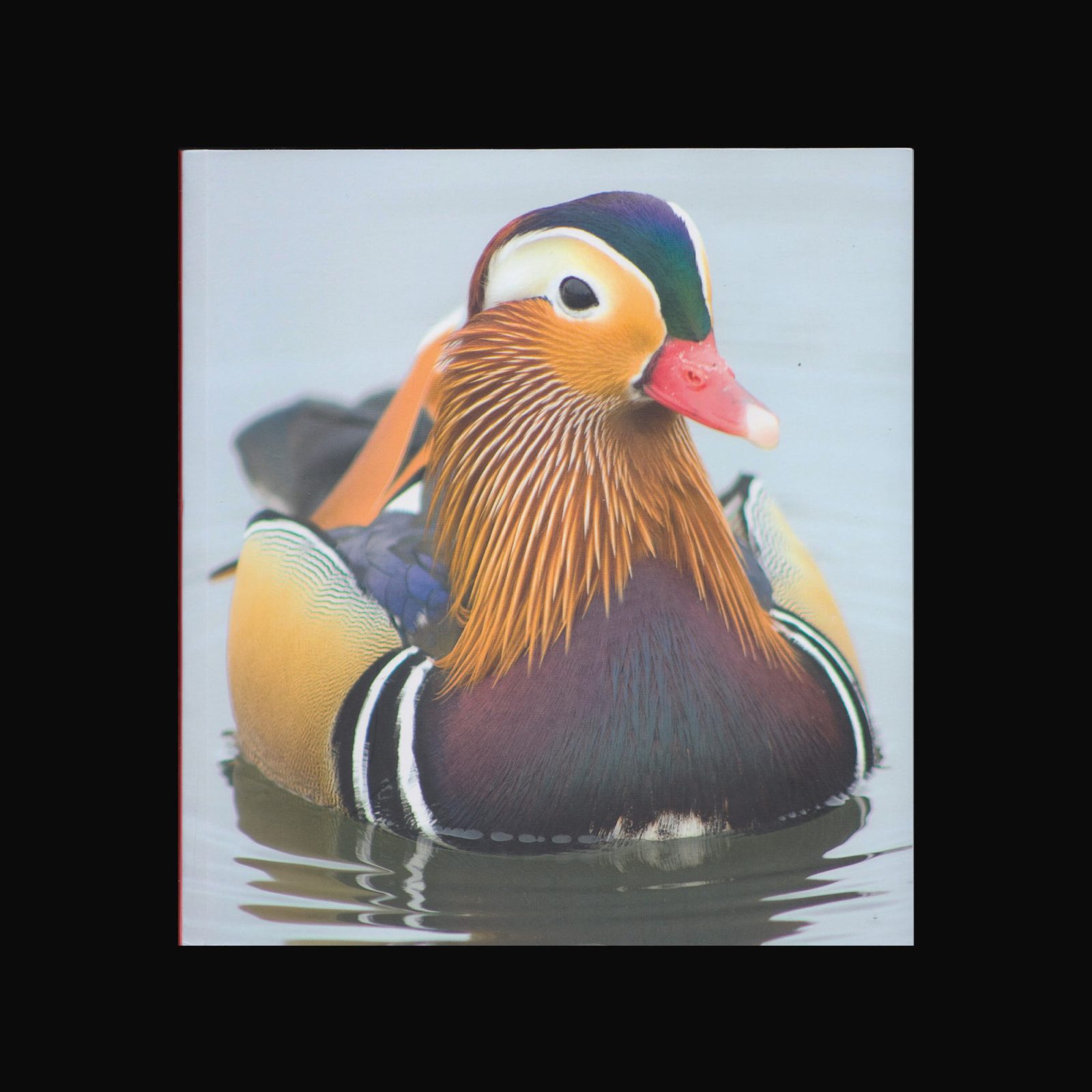

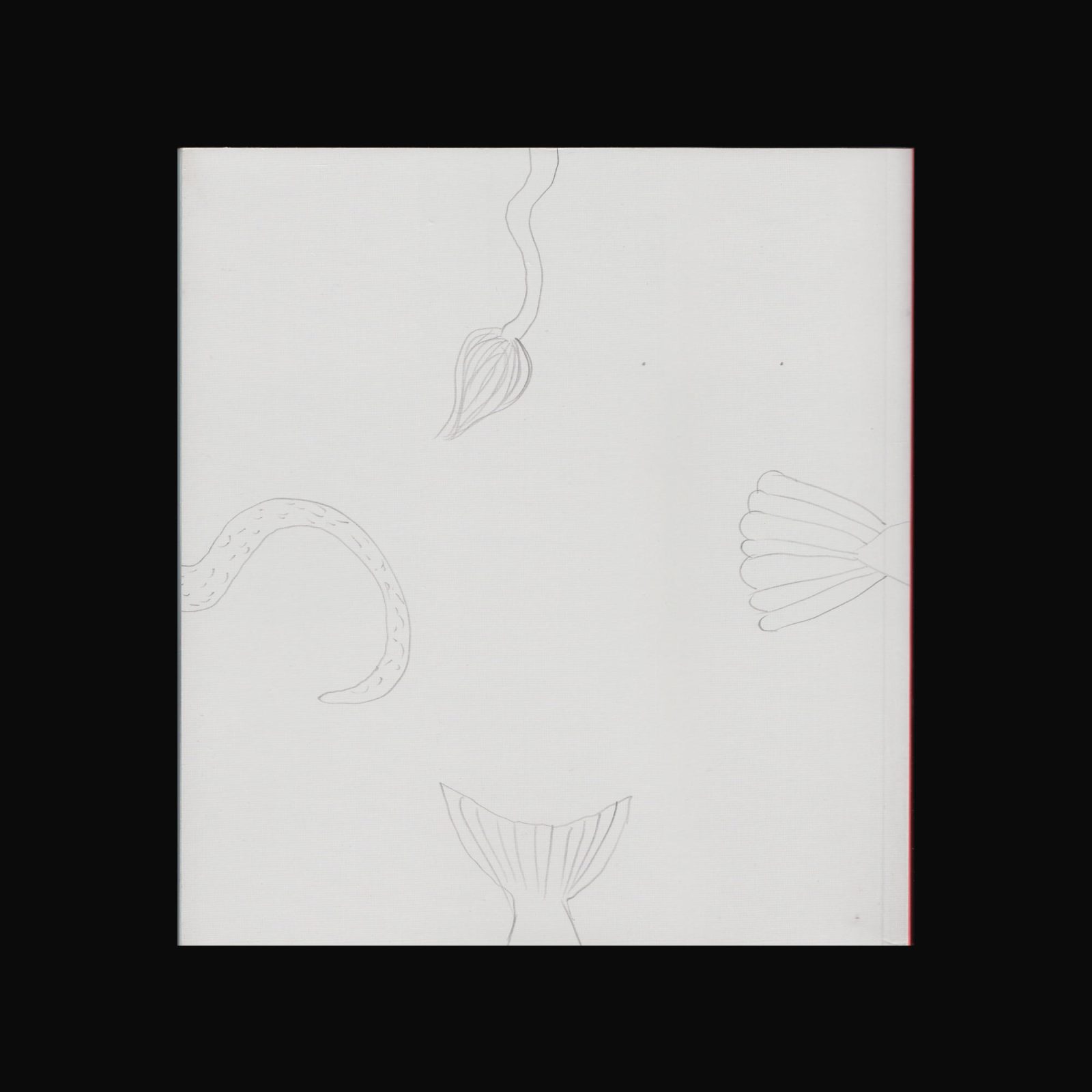
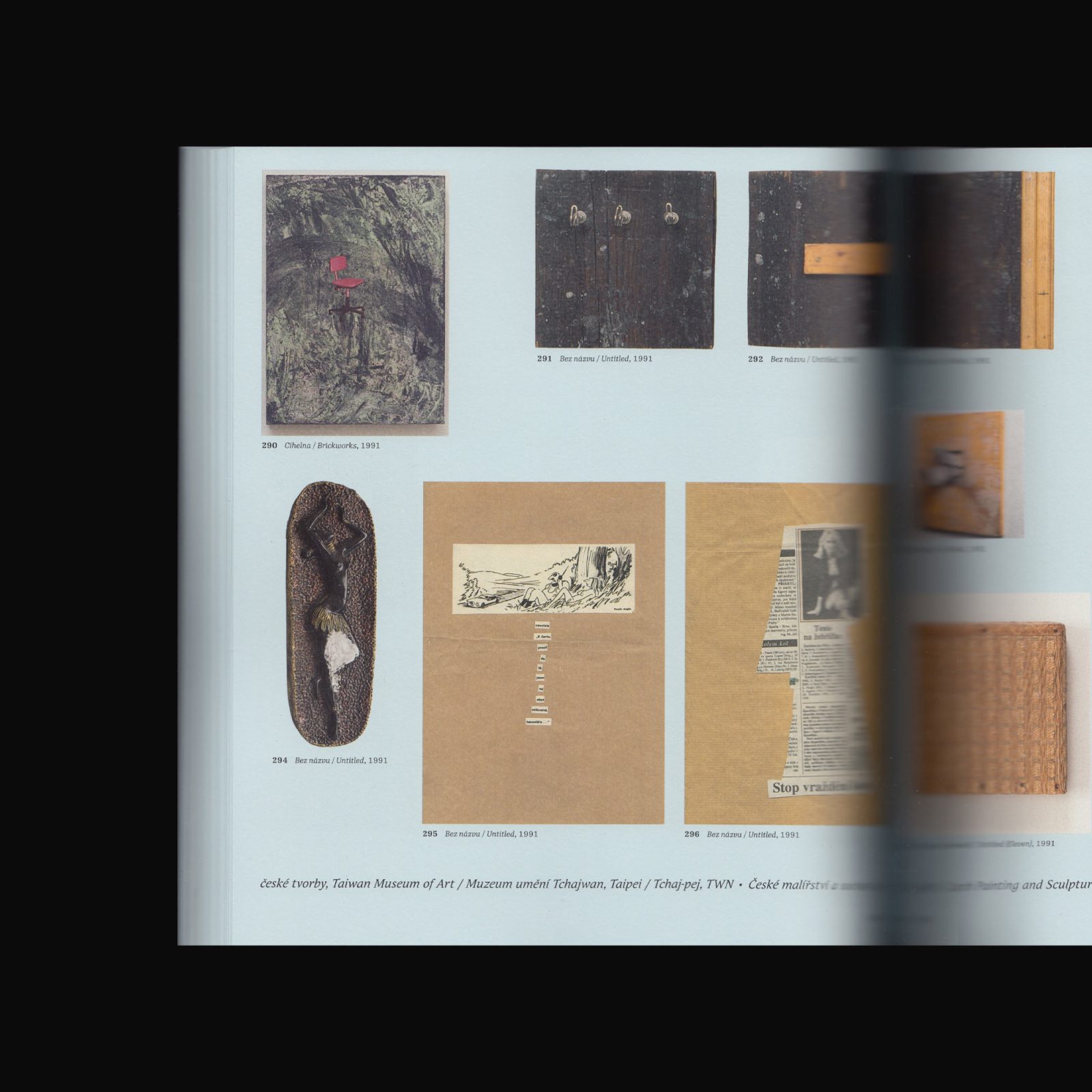
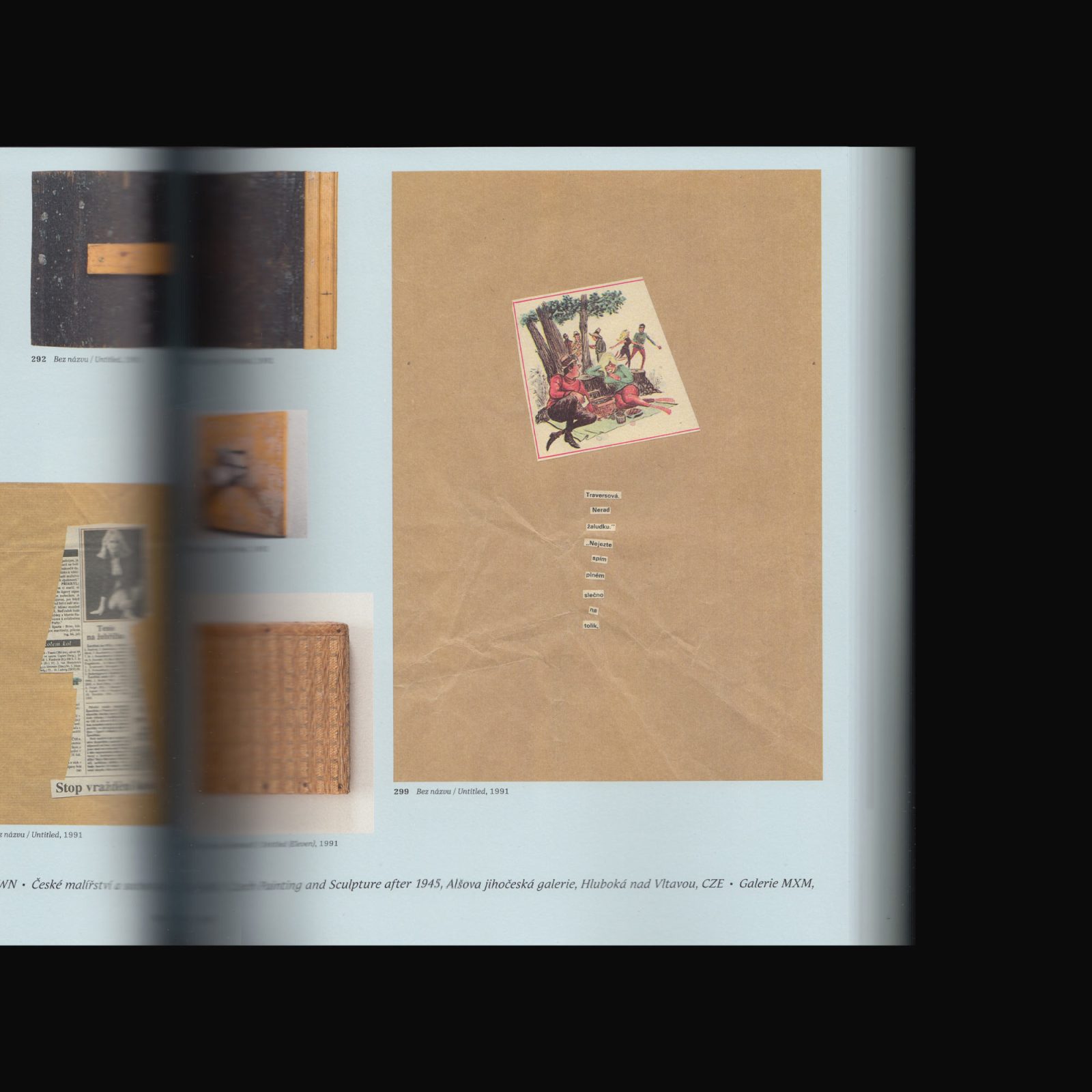
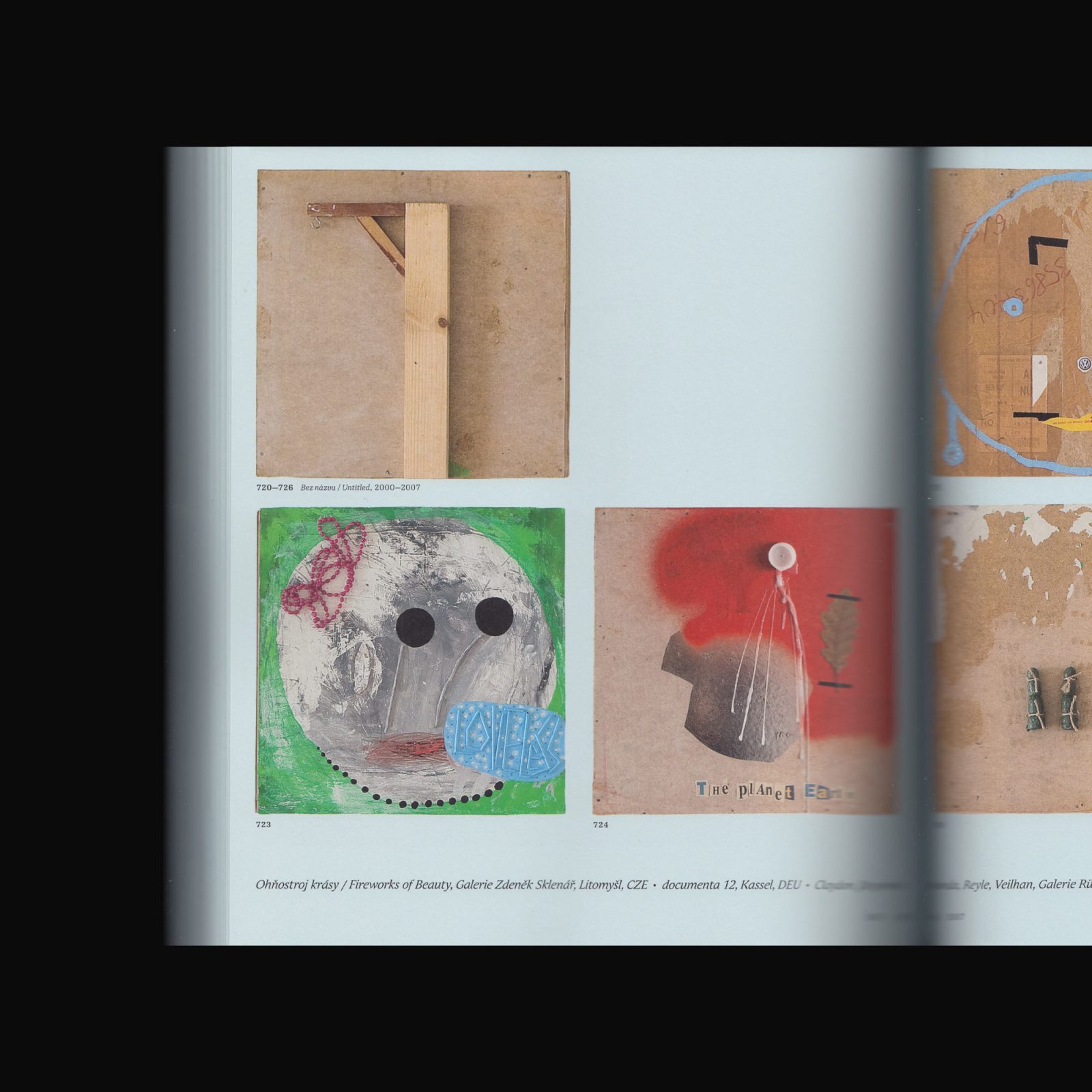
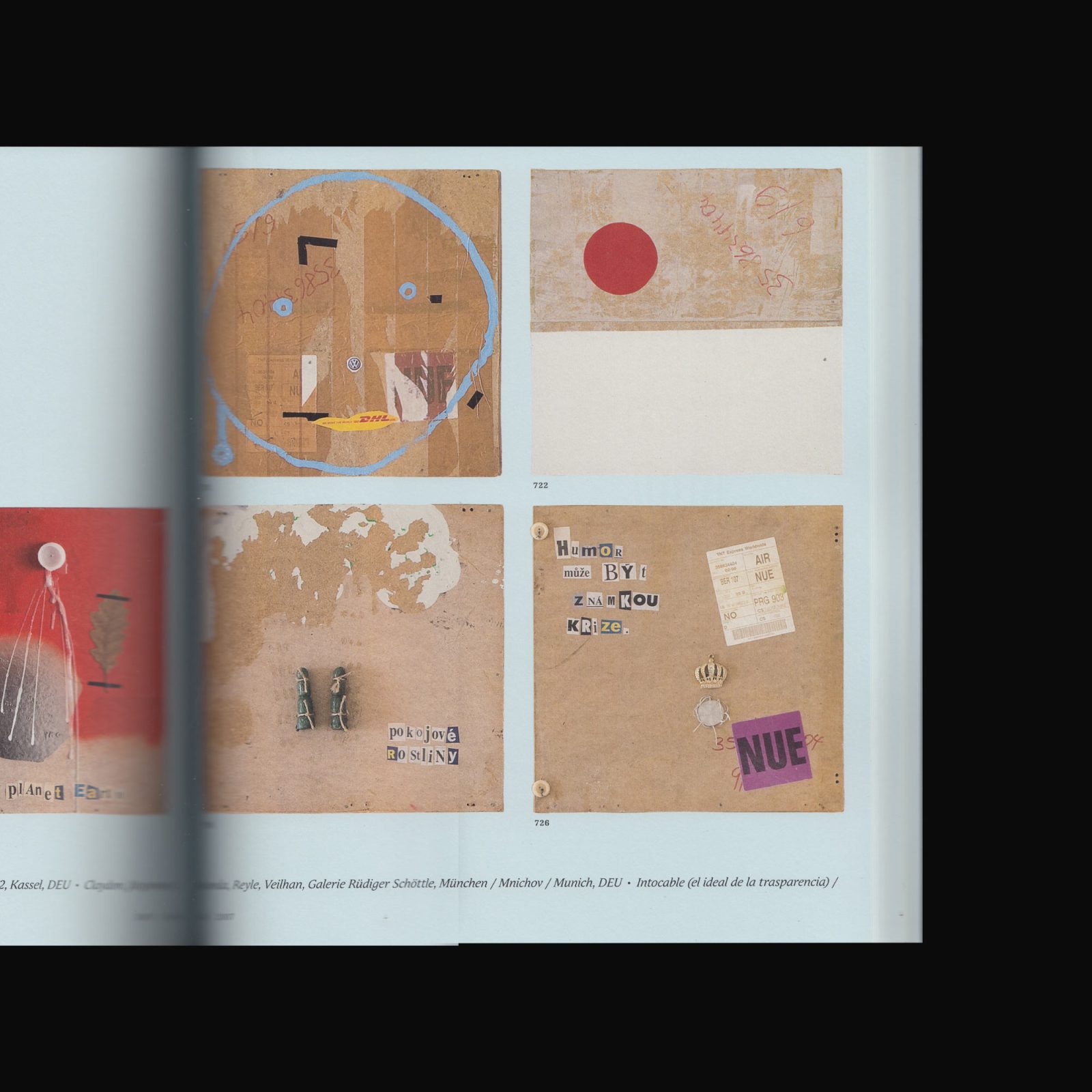
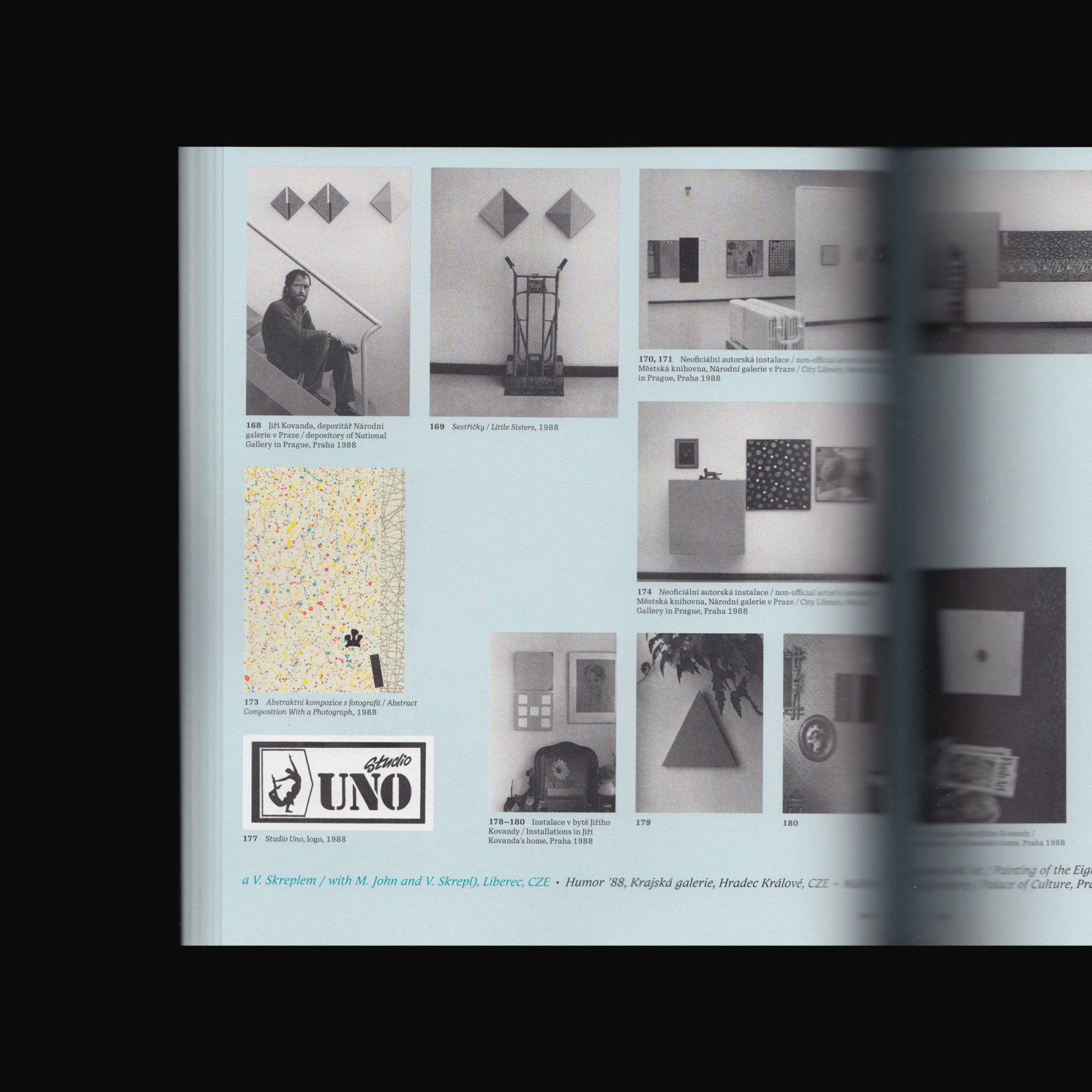
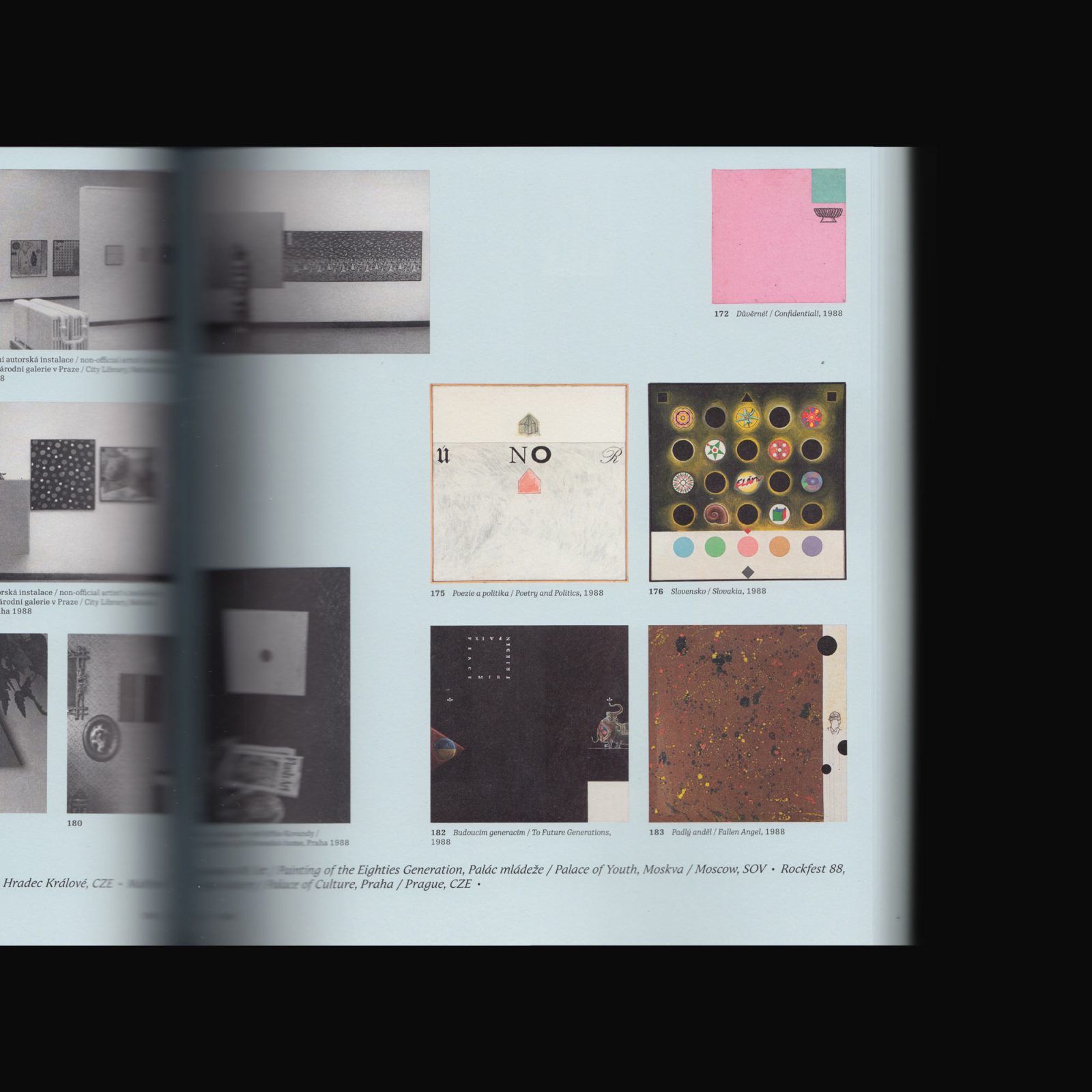
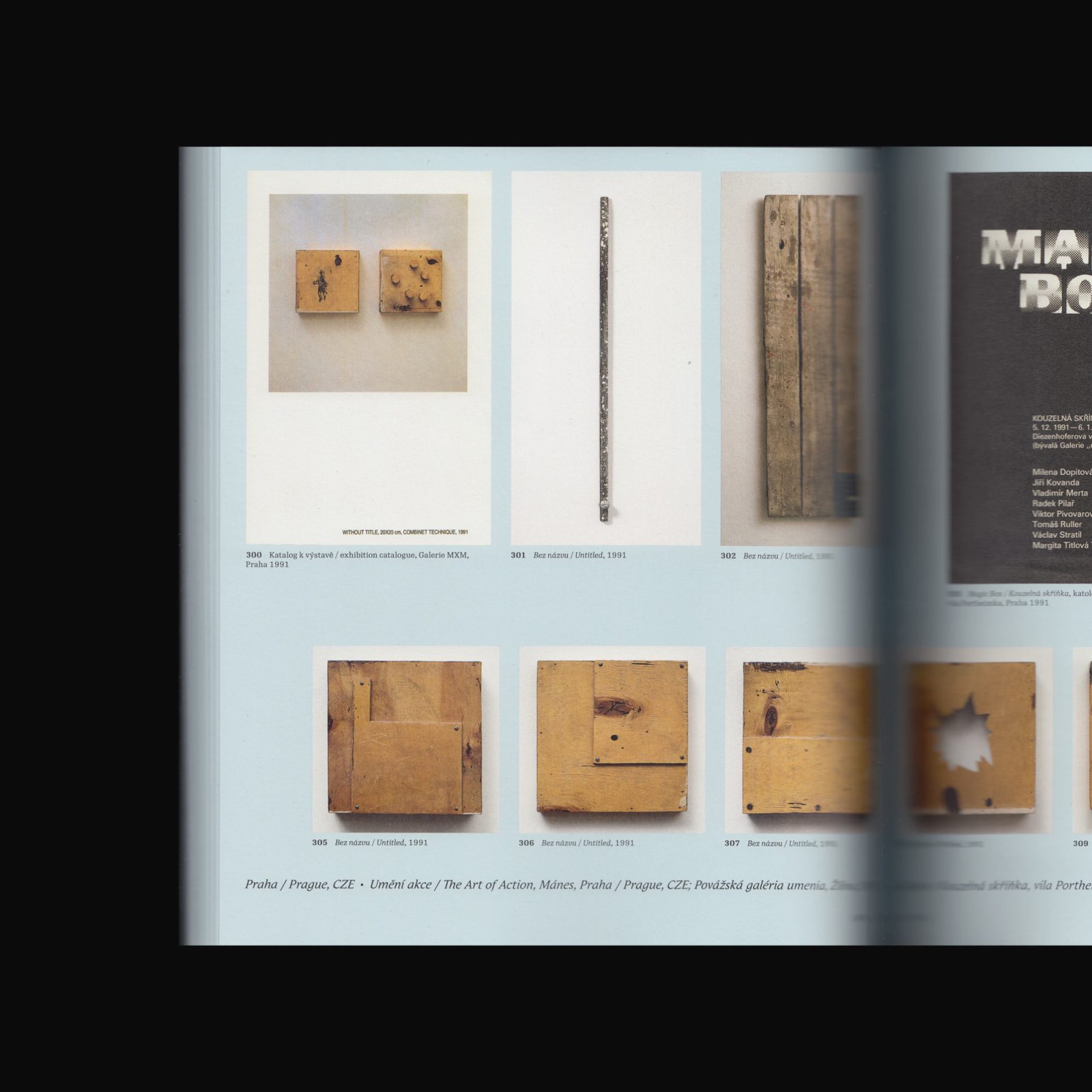
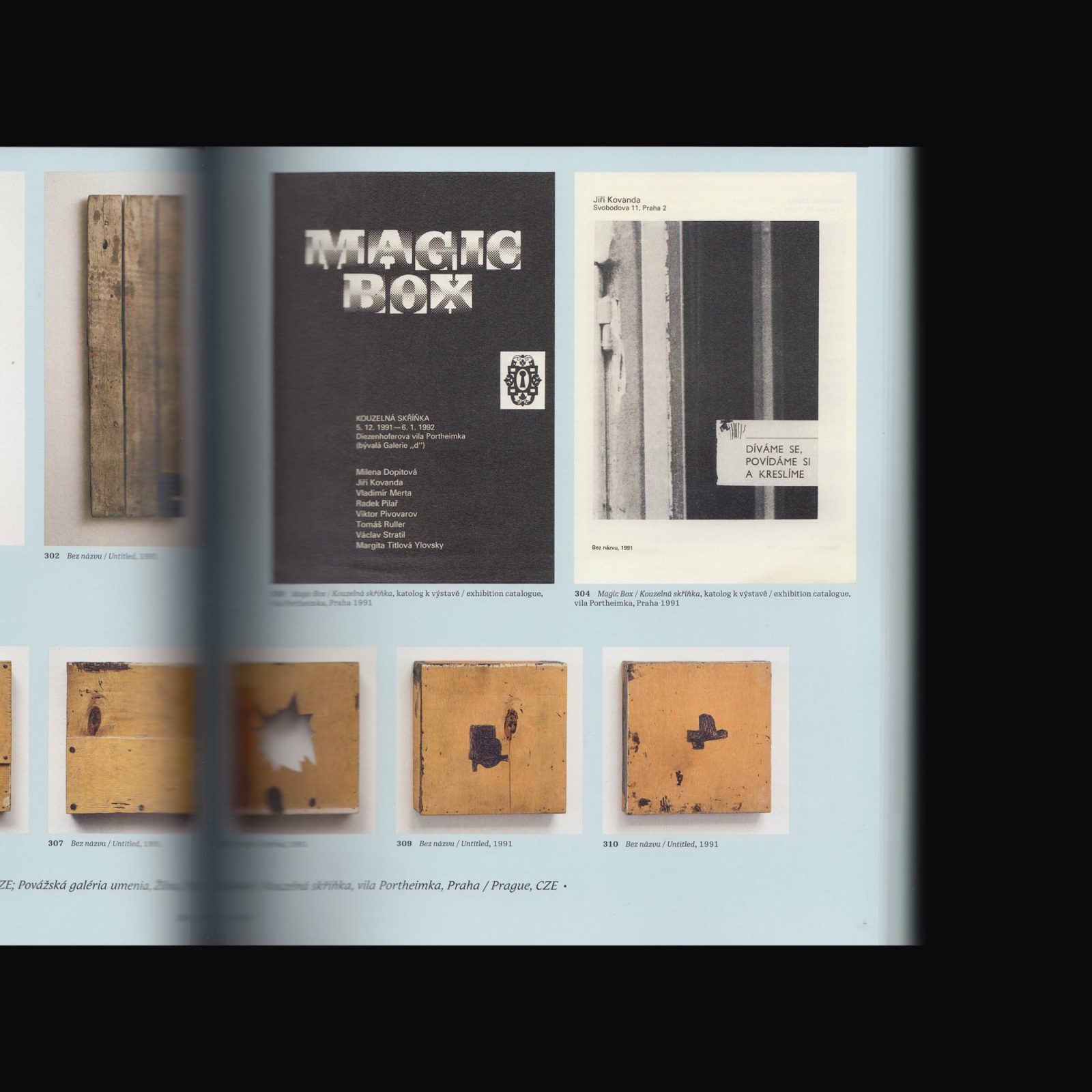
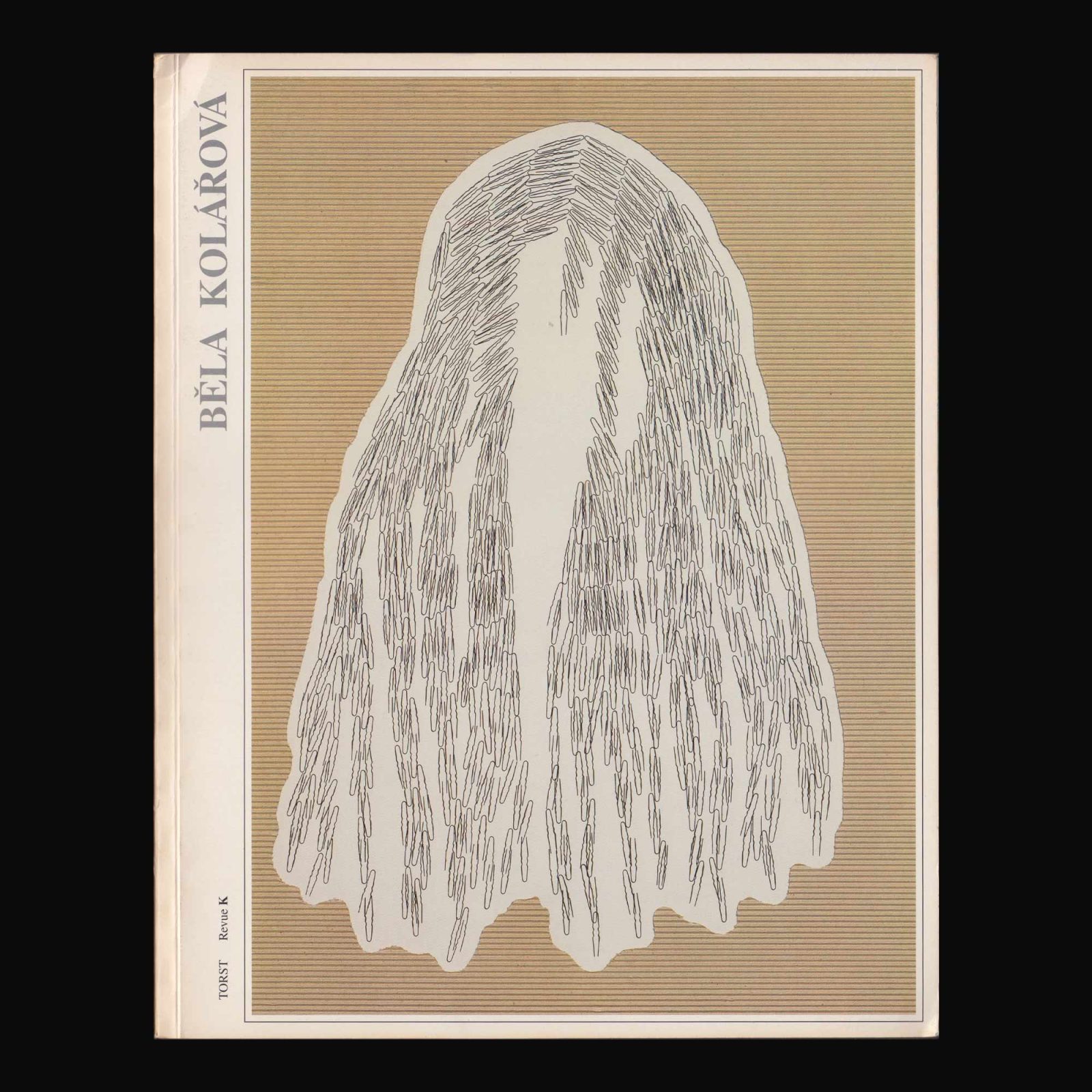

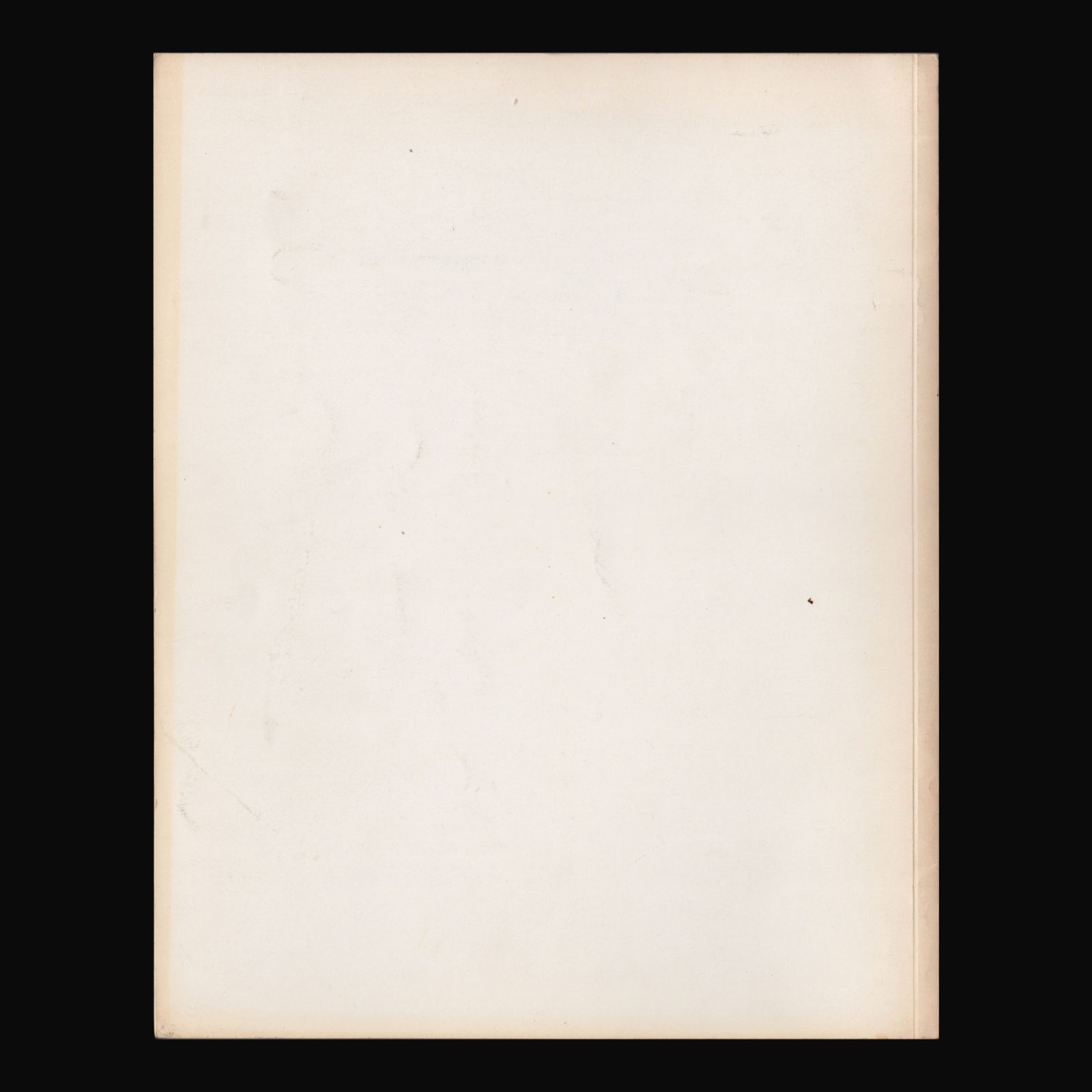
Prague-based artist Běla Kolářová (1923–2010) began experimenting with photographic techniques in the early 1960s, creating photograms and X-ray photographs that continued the Bauhaus tradition of photography as an abstract medium. Thus, for a series of photograms she called vegetages, she produced miniature “artificial negatives” by pressing natural materials into soft paraffin and using them for the exposure of the photographic paper instantaneously as “negatives.” In the late sixties Kolářová increasingly began creating assemblages out of found objects including household items such as snap fasteners, needles and safety pins. Kolářová arranged these objects according to conceptual grids, and thus they are somewhat akin to the work of Nouveaux Realistes as well as to various conceptual practices. The work she produced in this way defied the aesthetic canon of Socialist Realism, and Kolářová developed a remarkable conceptual feminist style that was all her own.
*Please note this publication is secondhand and may have some traces of previous ownership.
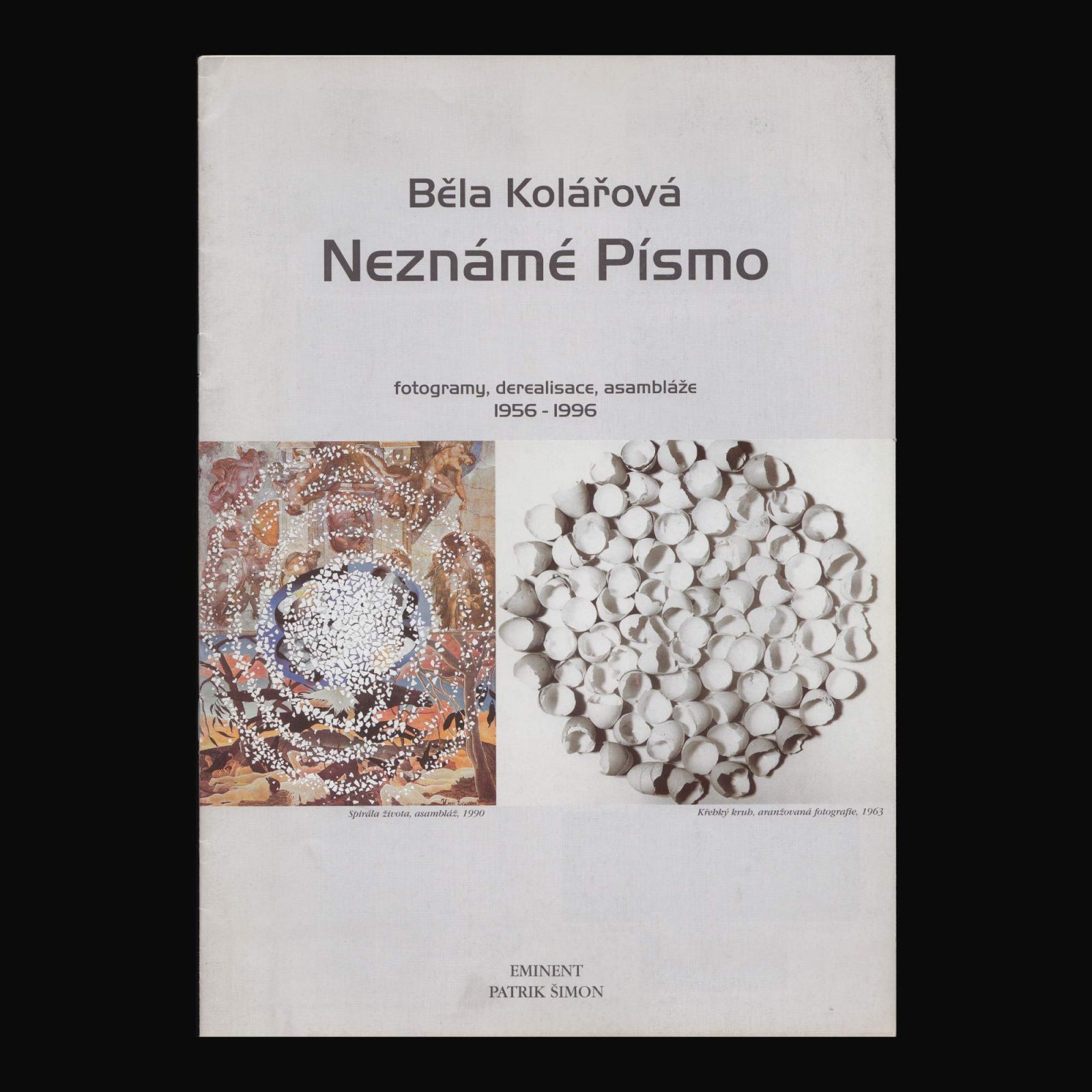
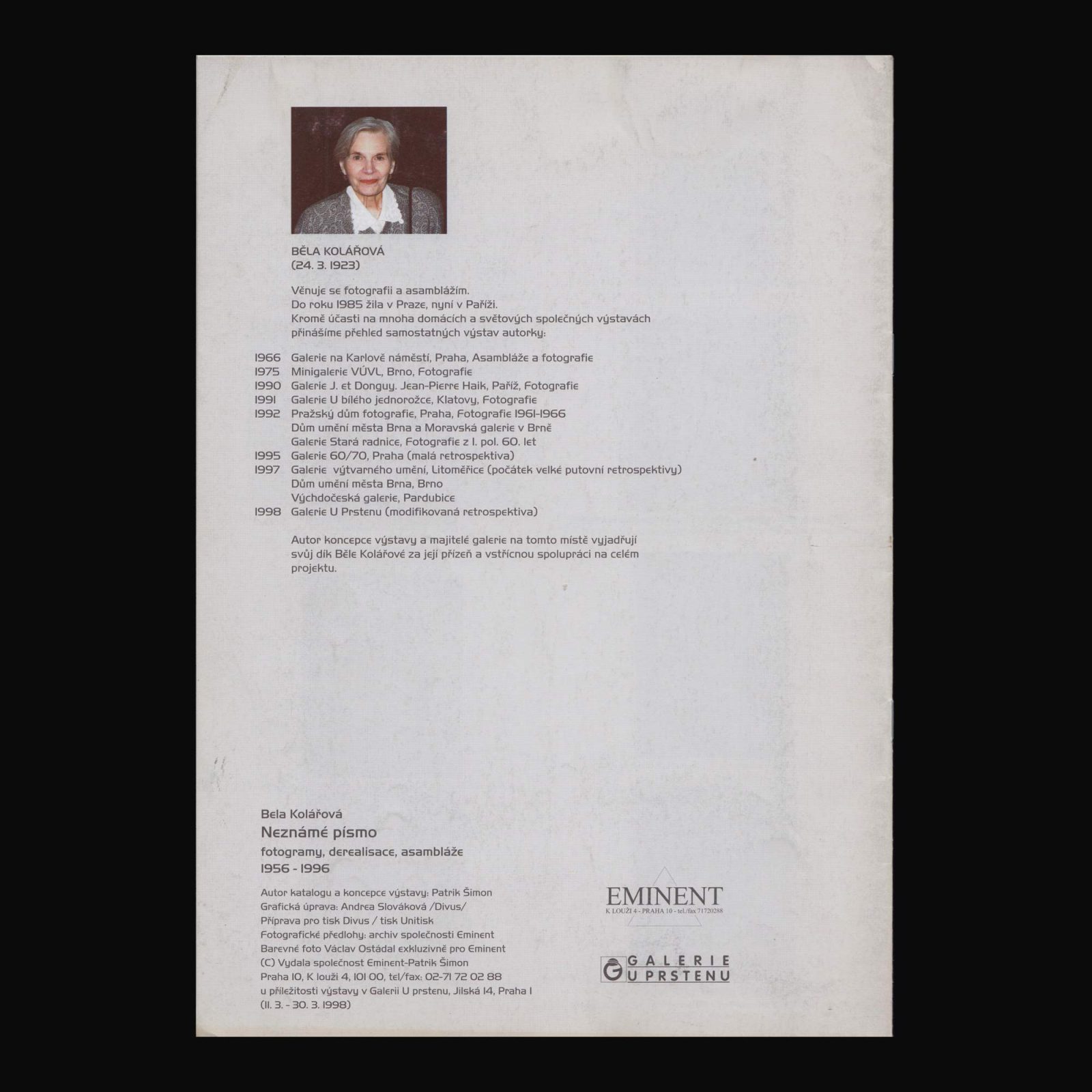
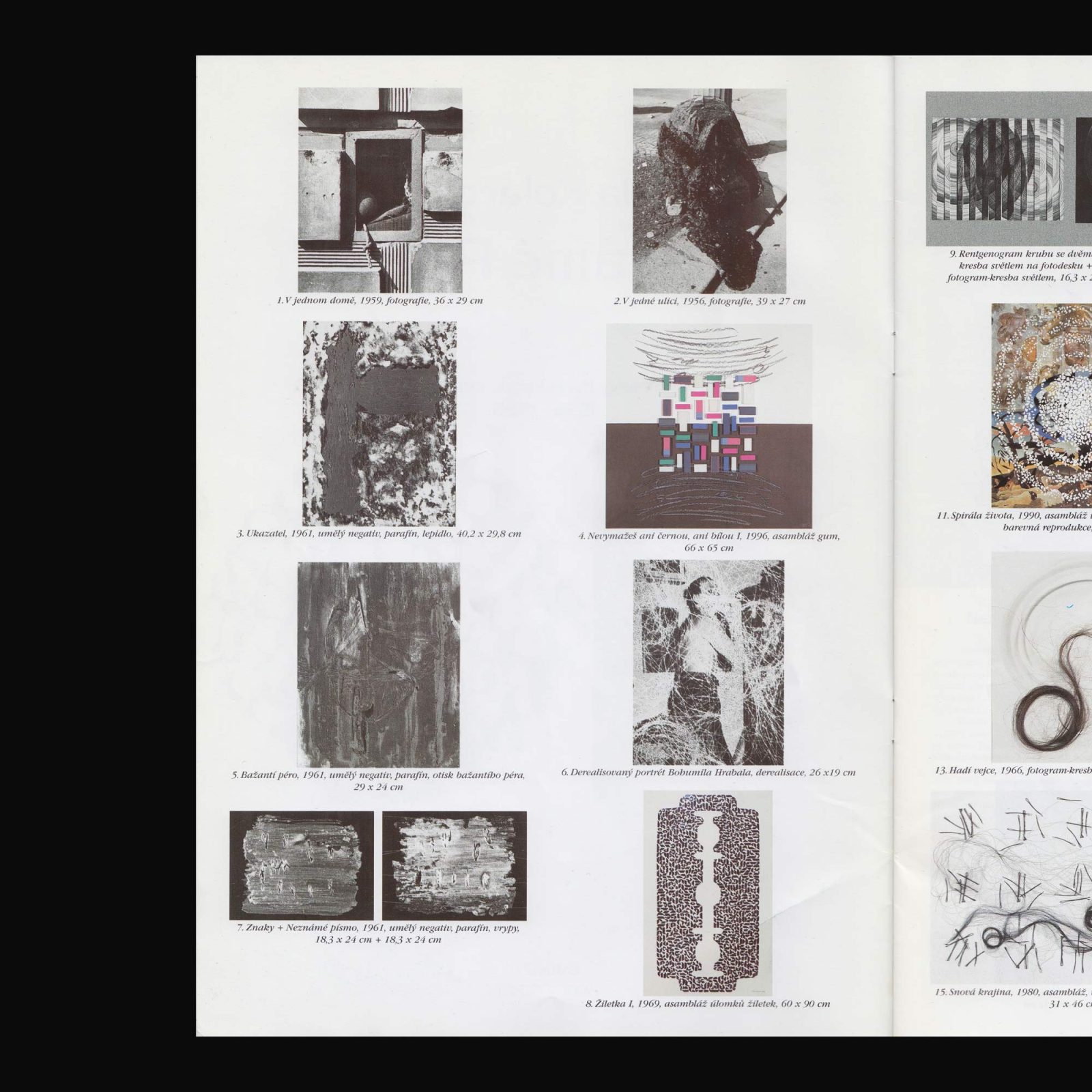
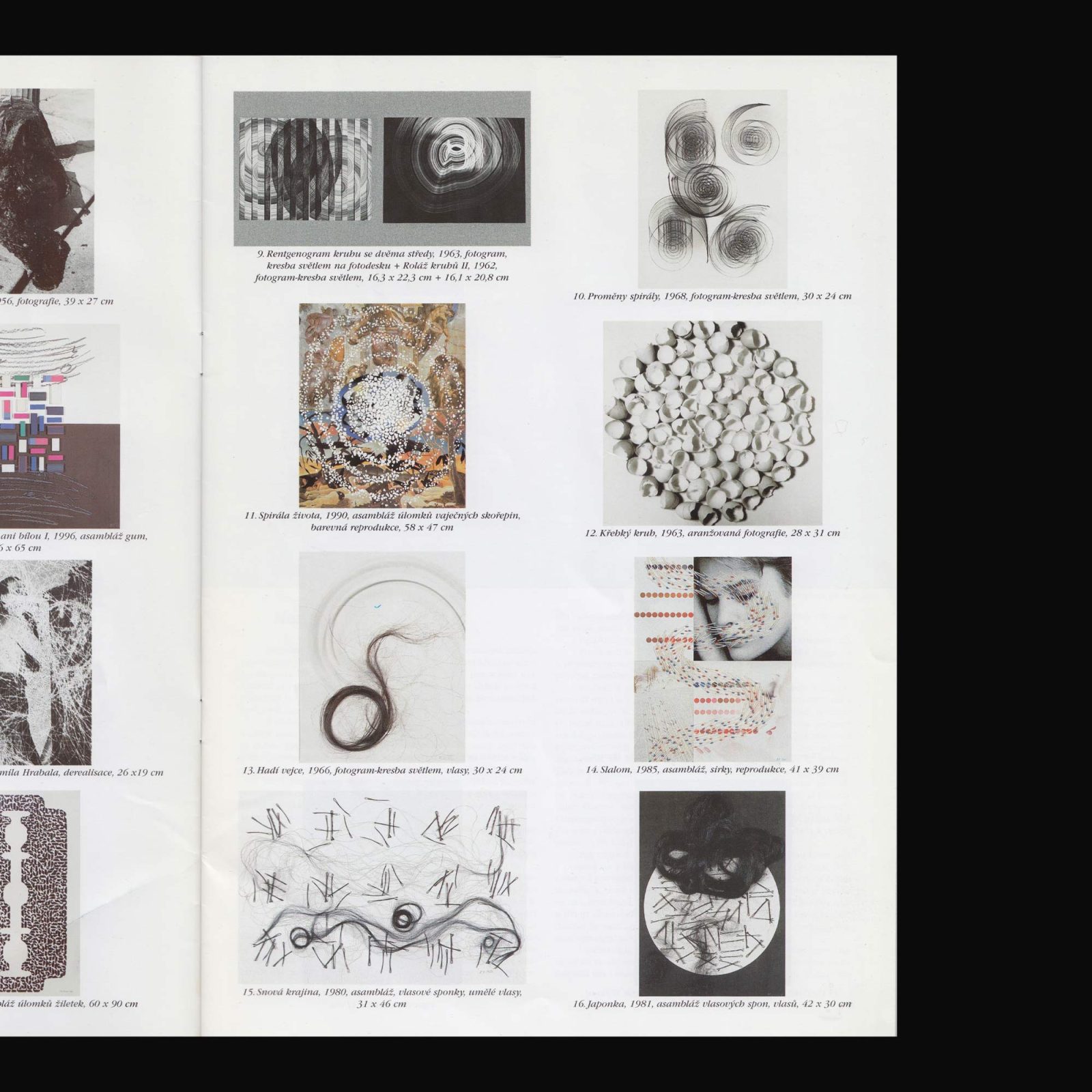
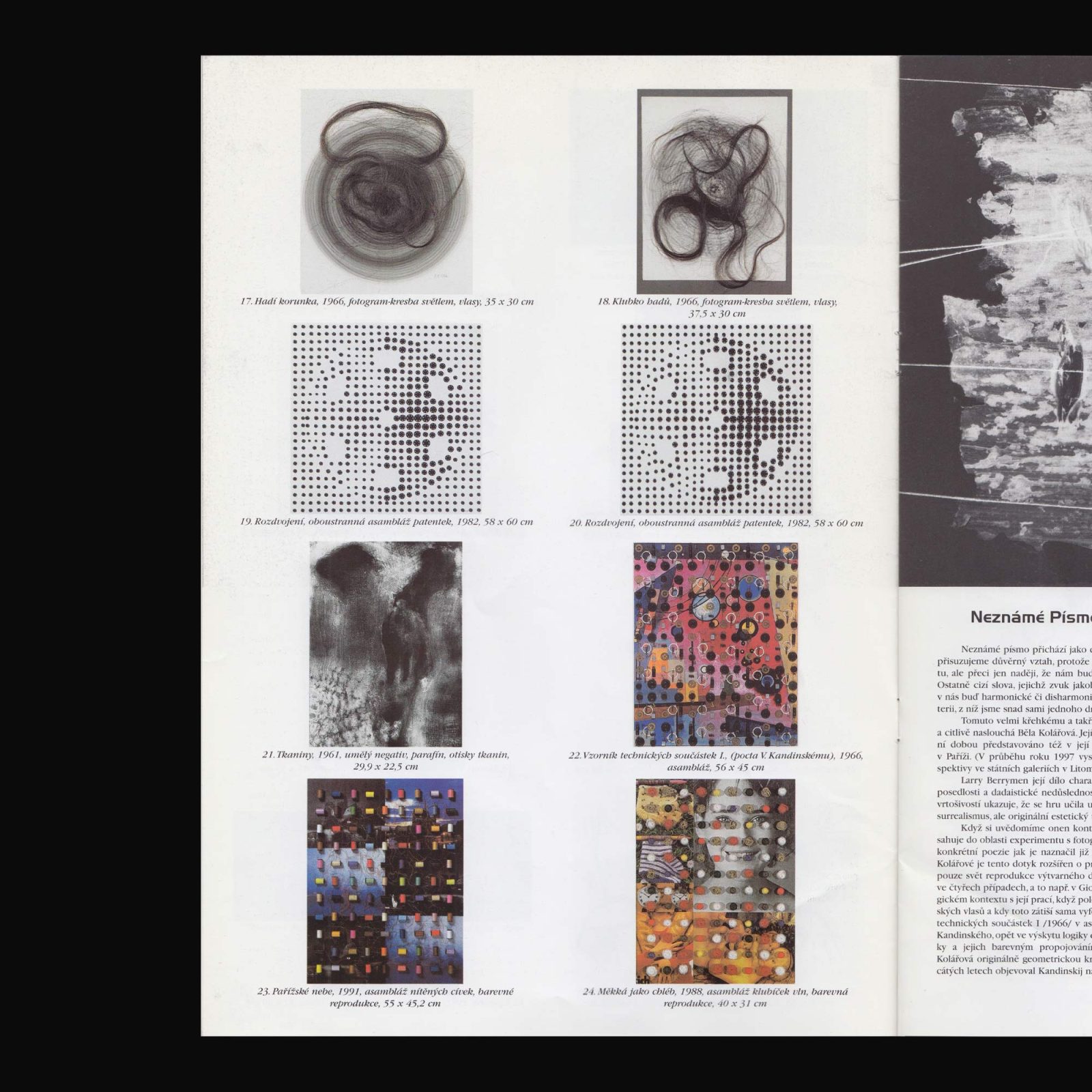
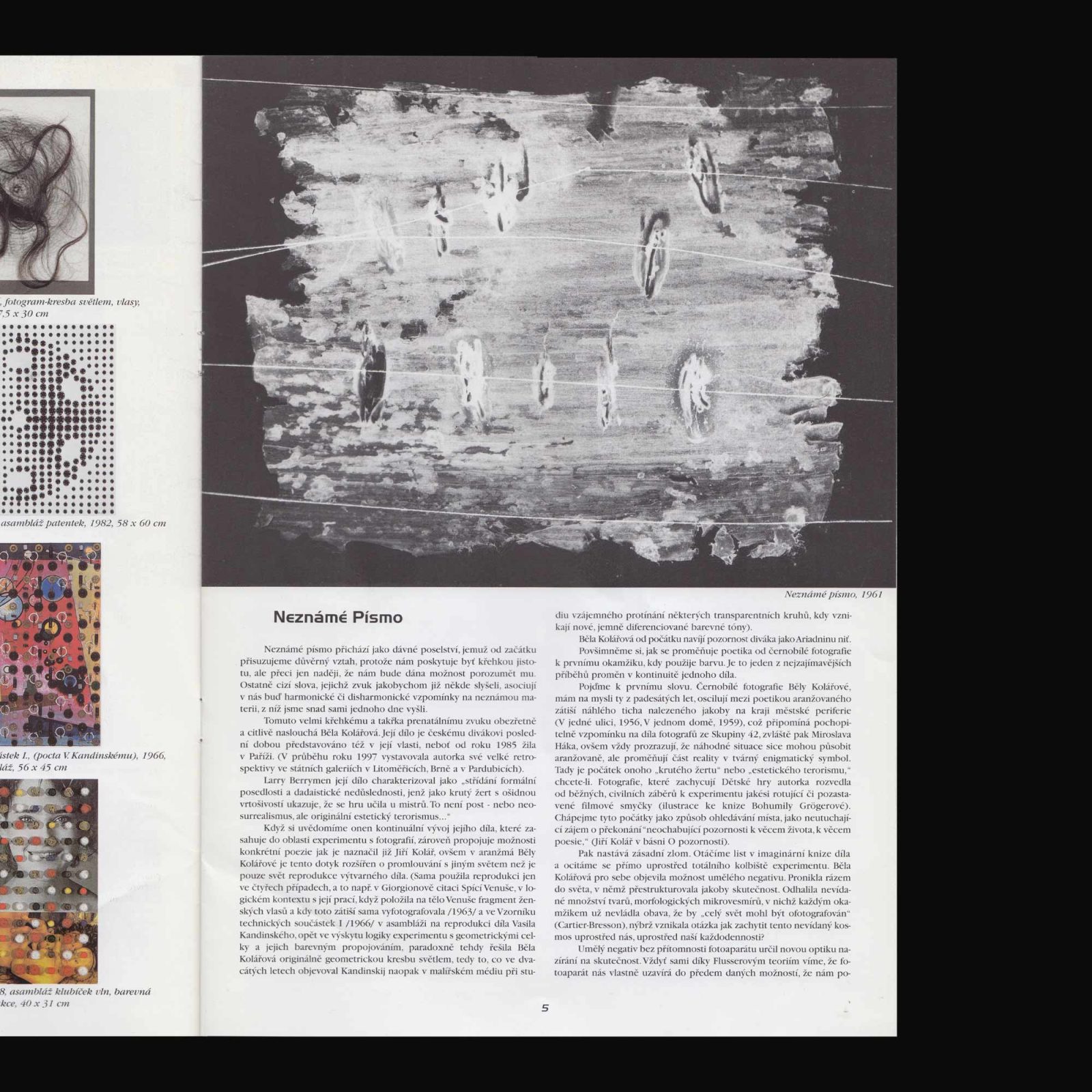
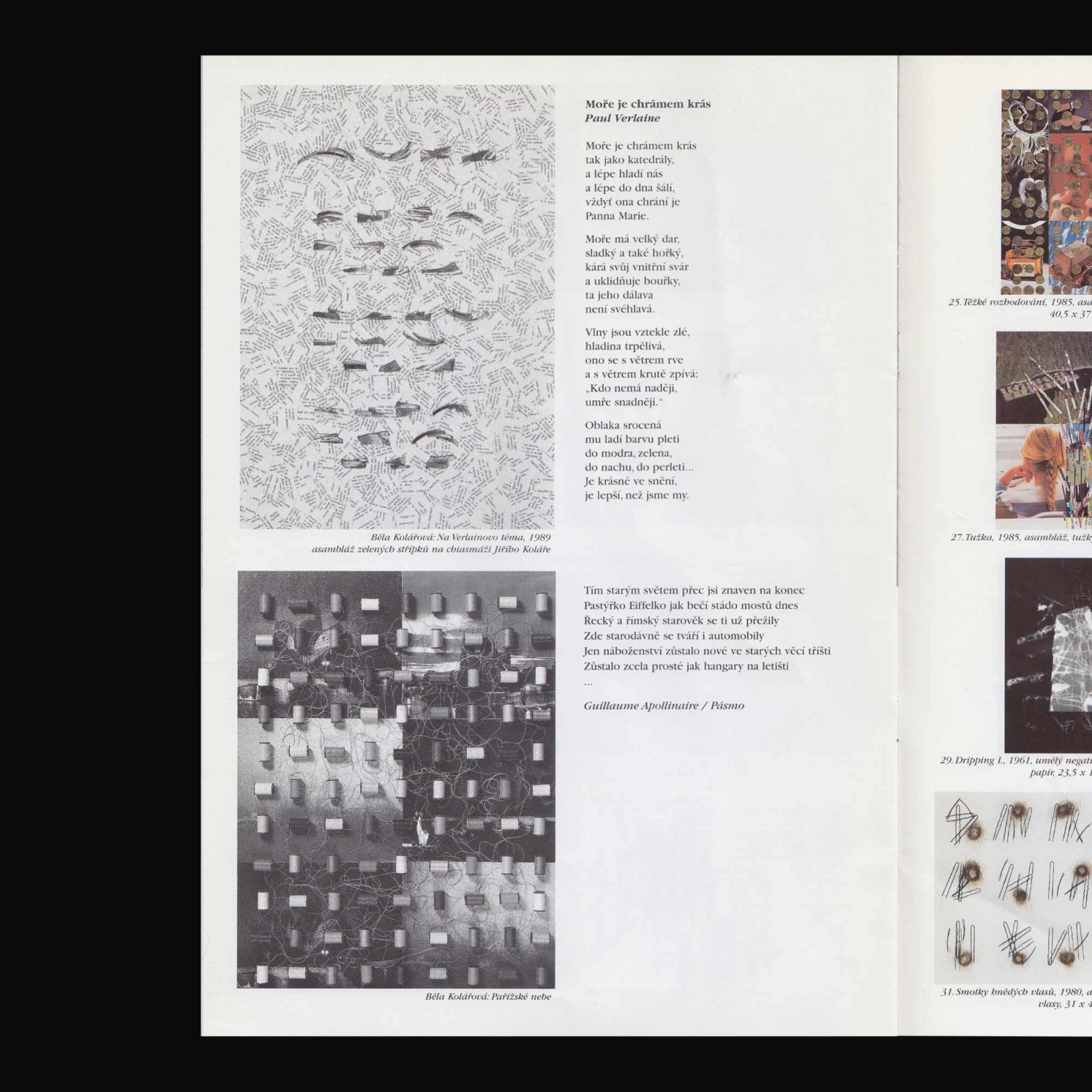
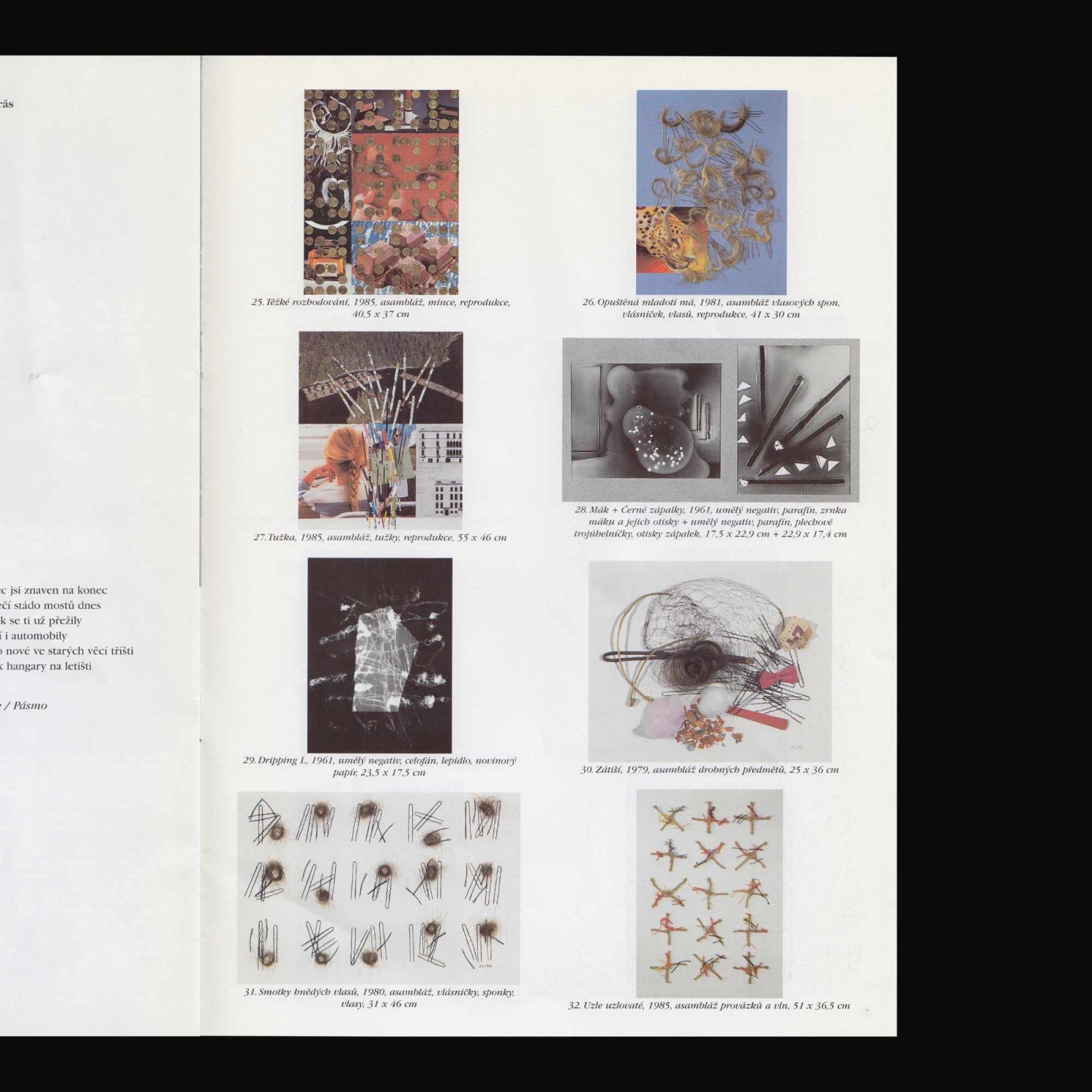
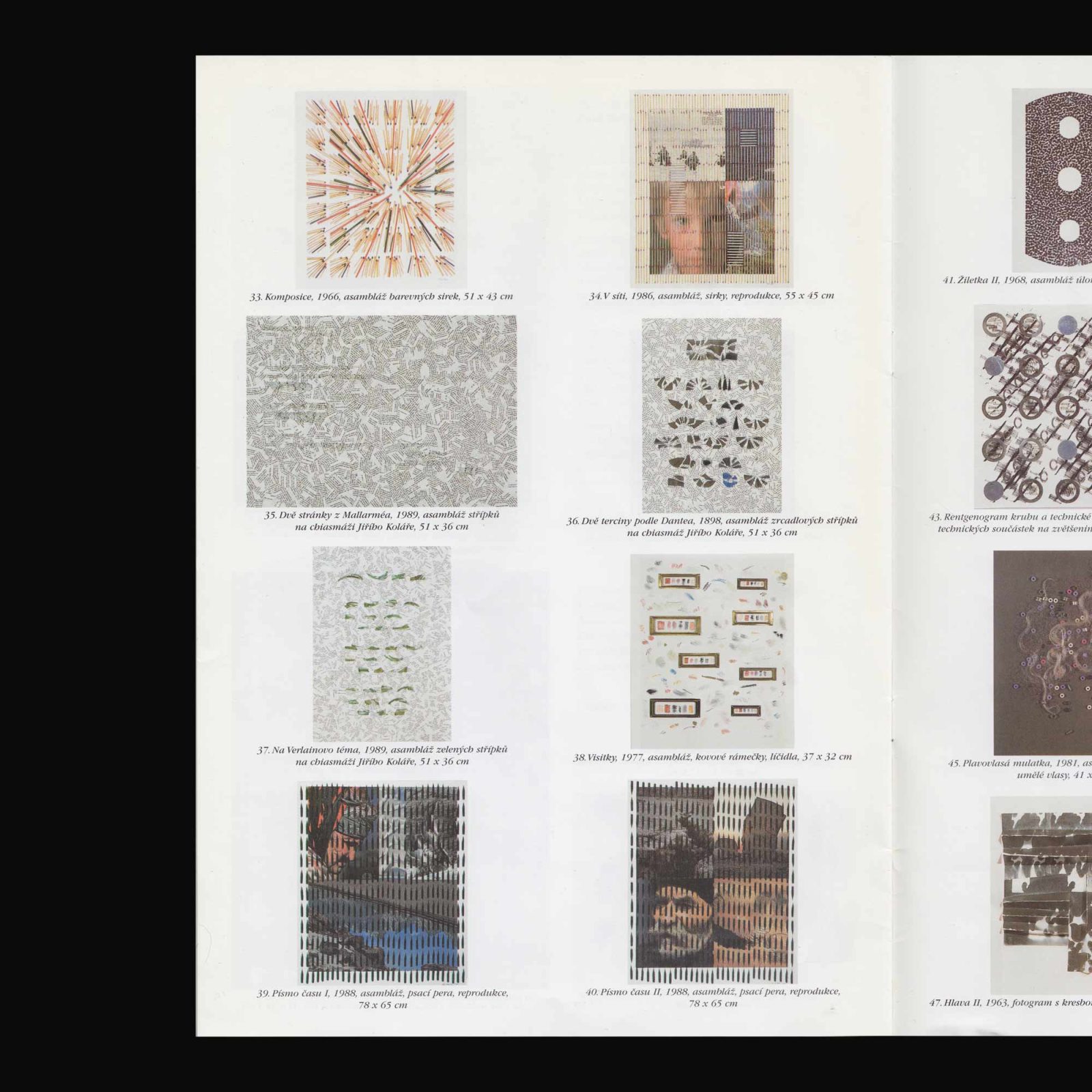
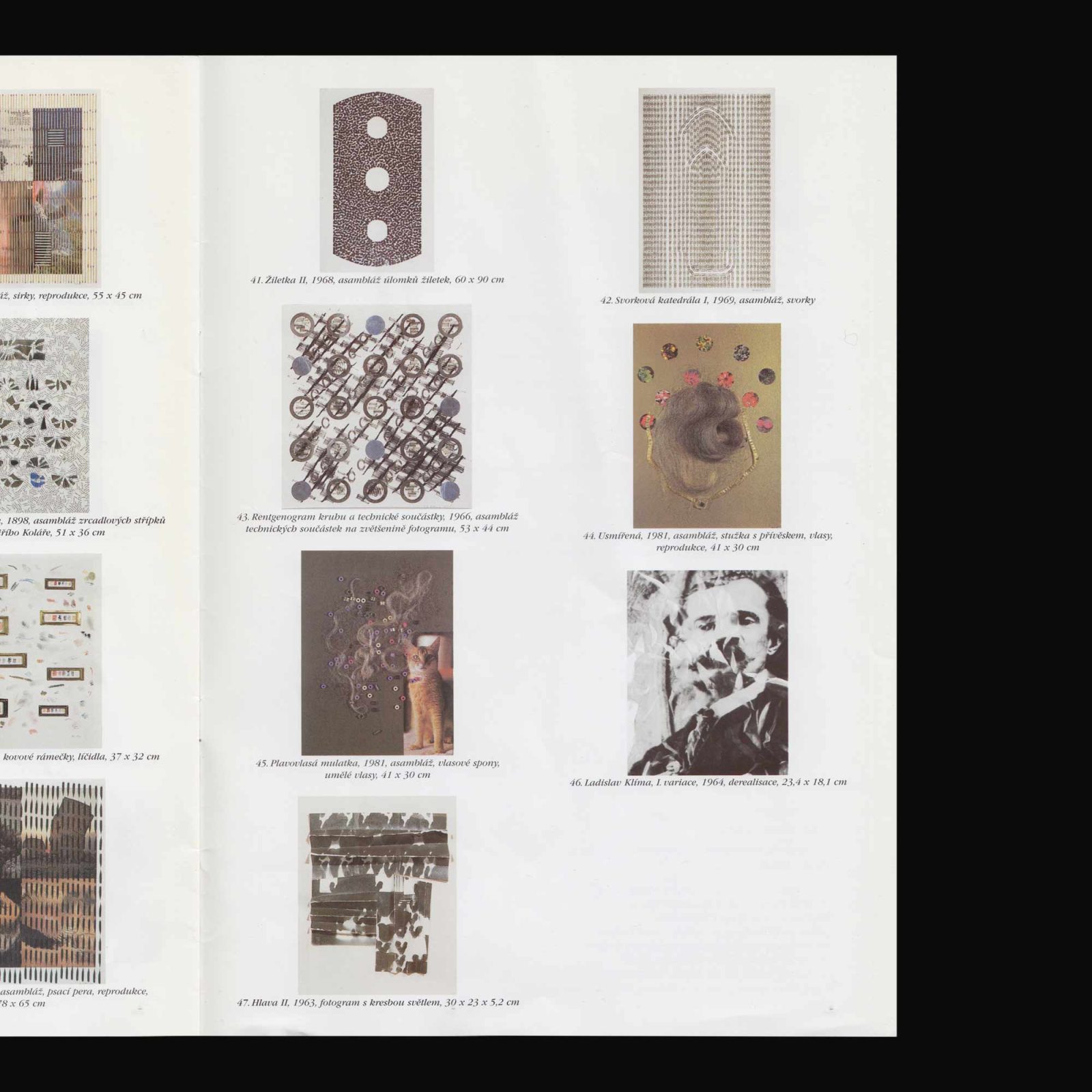
Published on the occasion of Běla Kolářová: Neznámé Písmo–Fotogramy, derealizace, asambláže 1956–1996, at Galerii U prstenu, Prague, 11–30 March, 1998
Prague-based artist Běla Kolářová (1923–2010) began experimenting with photographic techniques in the early 1960s, creating photograms and X-ray photographs that continued the Bauhaus tradition of photography as an abstract medium. Thus, for a series of photograms she called vegetages, she produced miniature “artificial negatives” by pressing natural materials into soft paraffin and using them for the exposure of the photographic paper instantaneously as “negatives.” In the late sixties Kolářová increasingly began creating assemblages out of found objects including household items such as snap fasteners, needles and safety pins. Kolářová arranged these objects according to conceptual grids, and thus they are somewhat akin to the work of Nouveaux Realistes as well as to various conceptual practices. The work she produced in this way defied the aesthetic canon of Socialist Realism, and Kolářová developed a remarkable conceptual feminist style that was all her own.
In recent years, Kolářová’s work was shown at the documenta 12 (2007), at the Raven Row gallery in London (2010) and in solo shows at the Museum Kampa in Prague (2008) and Muzeum Umění in Olomouc (2007).
*Please note this publication is secondhand and may have some traces of previous ownership.
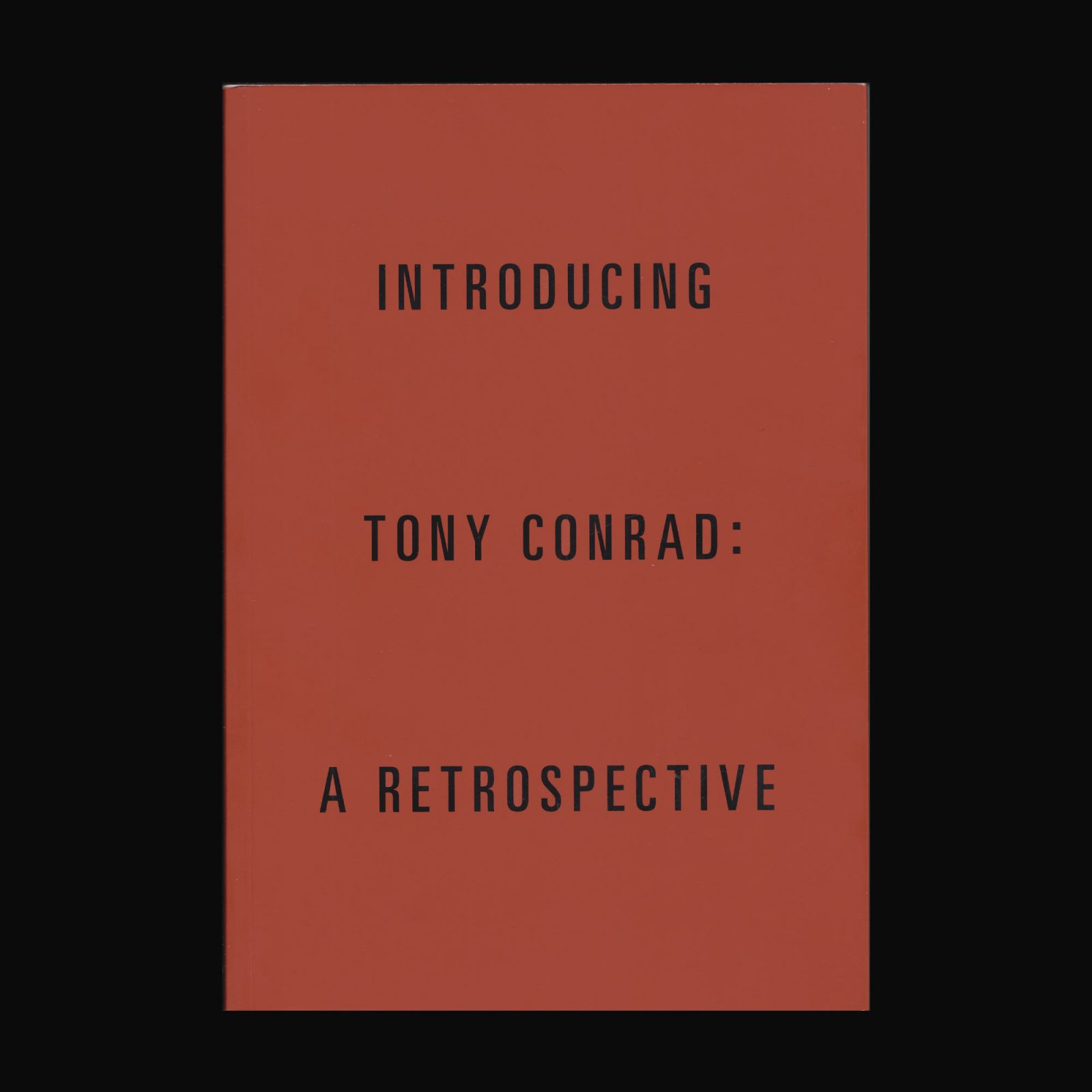
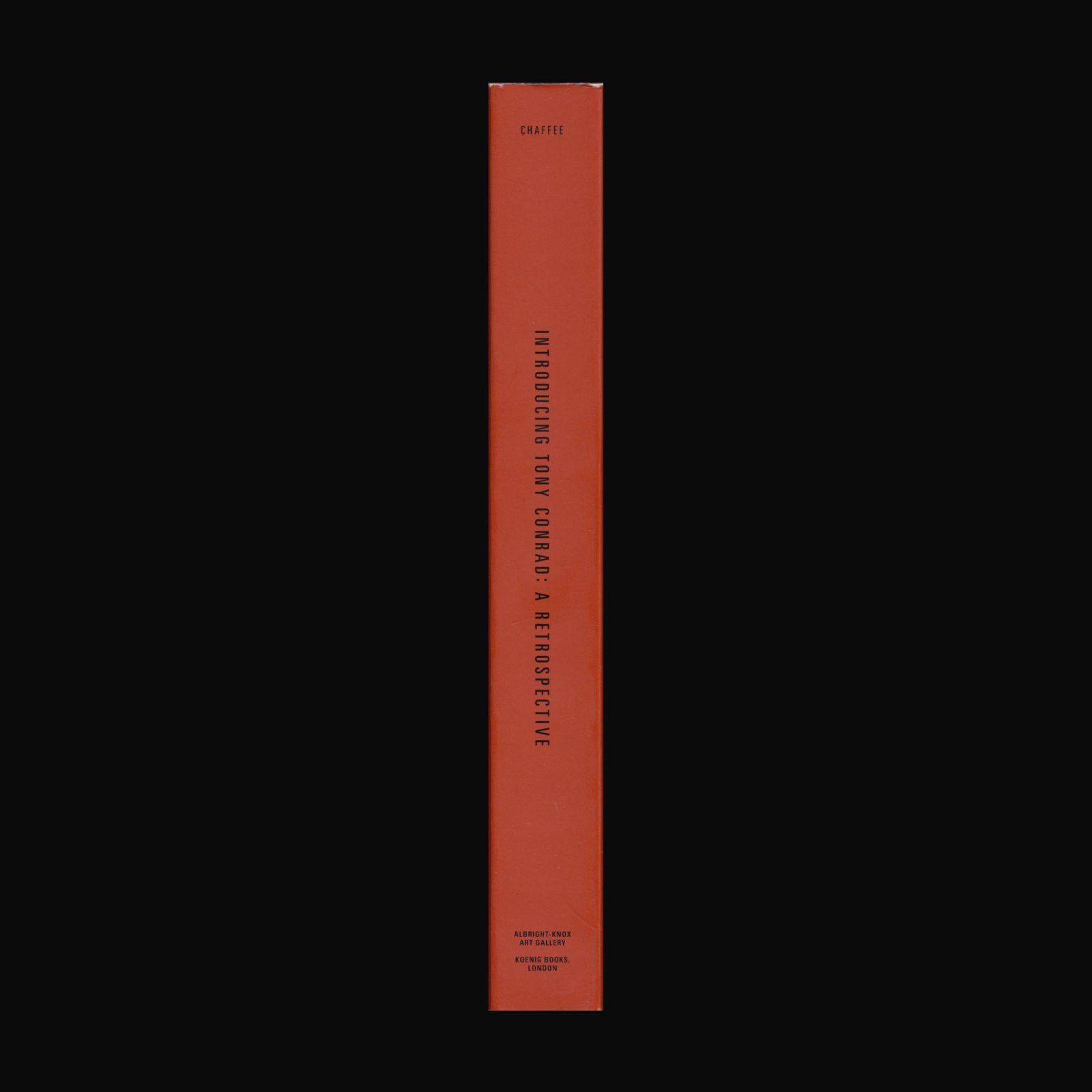
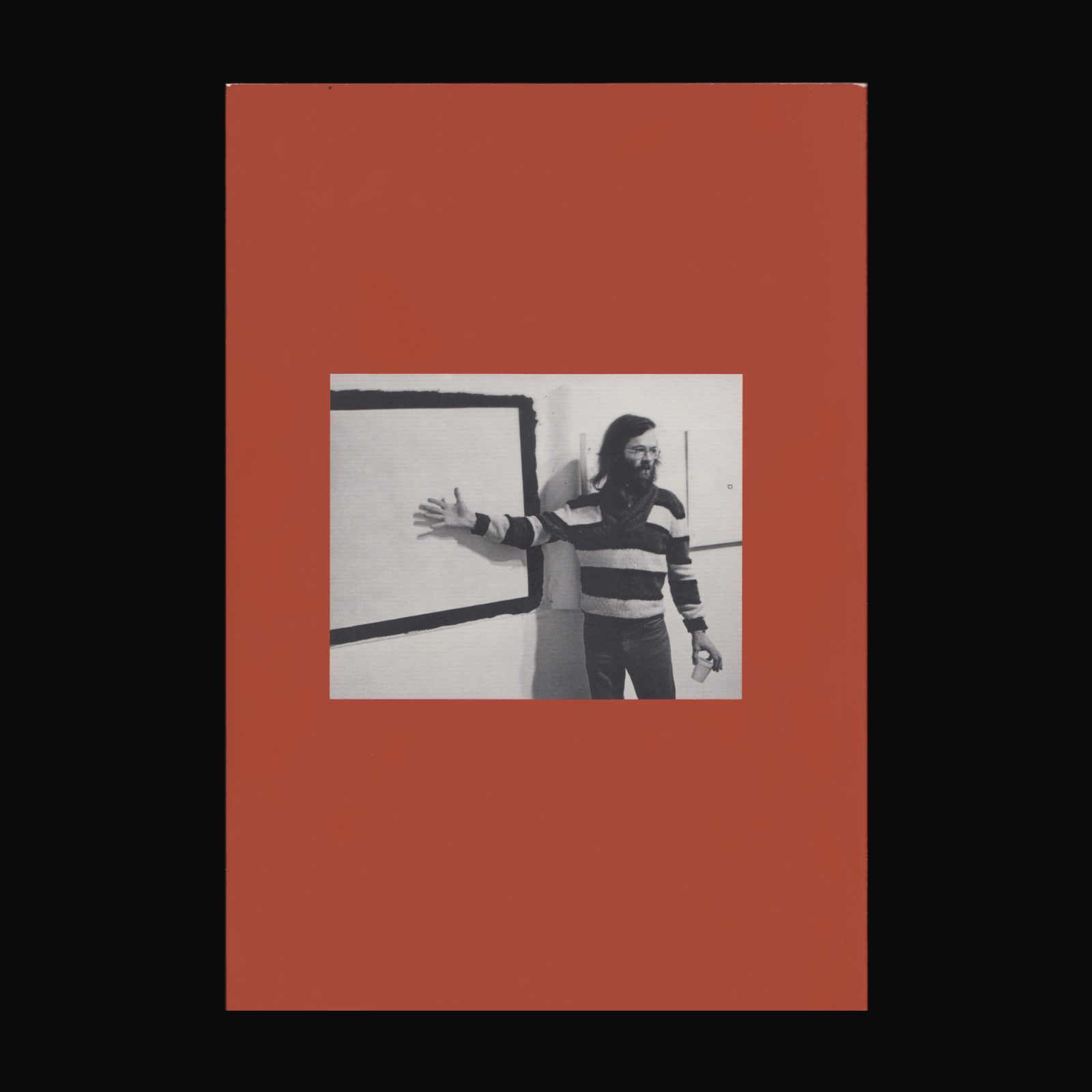
Produced on the occasion of Tony Conrad’s retrospective at the Albright-Knox Art Gallery, Buffalo (2018), MIT List Visual Arts Center and Carpenter Center for Visual Arts, Harvard University (2018/2019) and ICA, University of Pennsylvania (2019). With texts by Rachel Adams, Vera Alemani, Constance DeJong, Diedrich Diederichsen, Anthony Elms, David Grubbs, Henriette Huldisch, Branden W. Joseph, Andrew Lampert, Christopher Müller, Annie Ochmanek, Tony Oursler, Tina Rivers Ryan, Jay Sanders, Paige Sarlin, Christopher Williams.
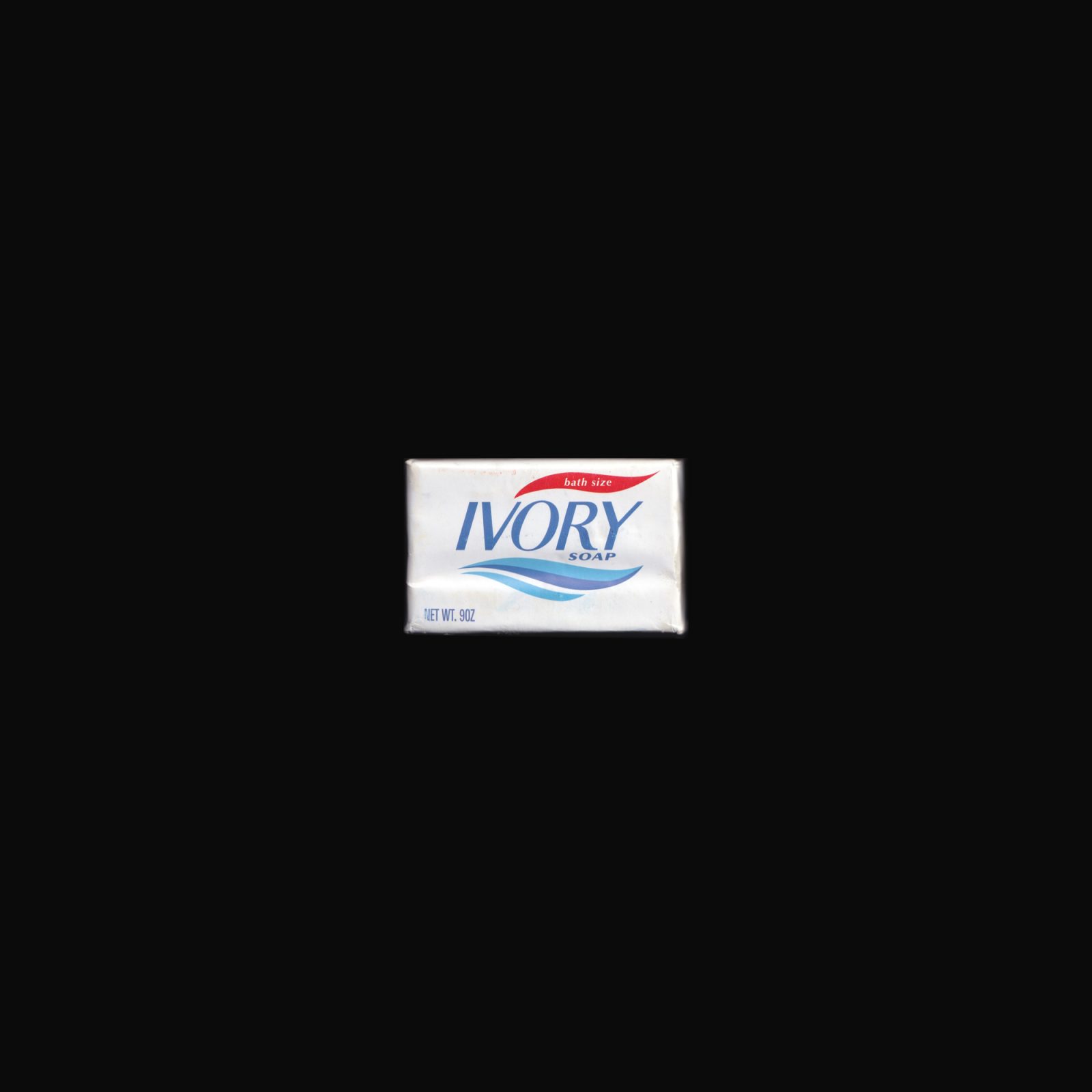

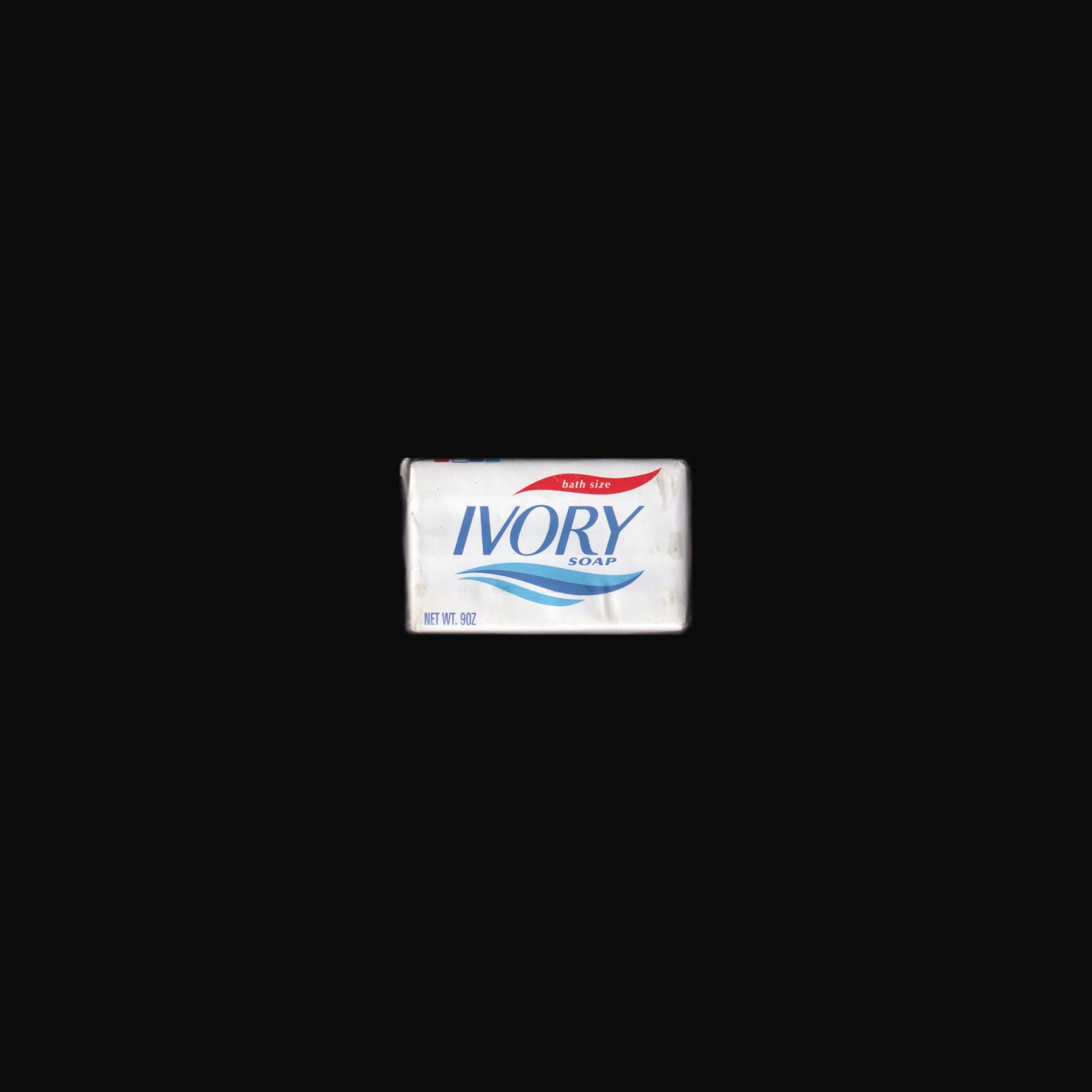
Bar of soap as part of the exhibition Cut a Door in the Wolf by Jason Dodge at MACRO, Rome, 11 November, 2021–16 March, 2022.
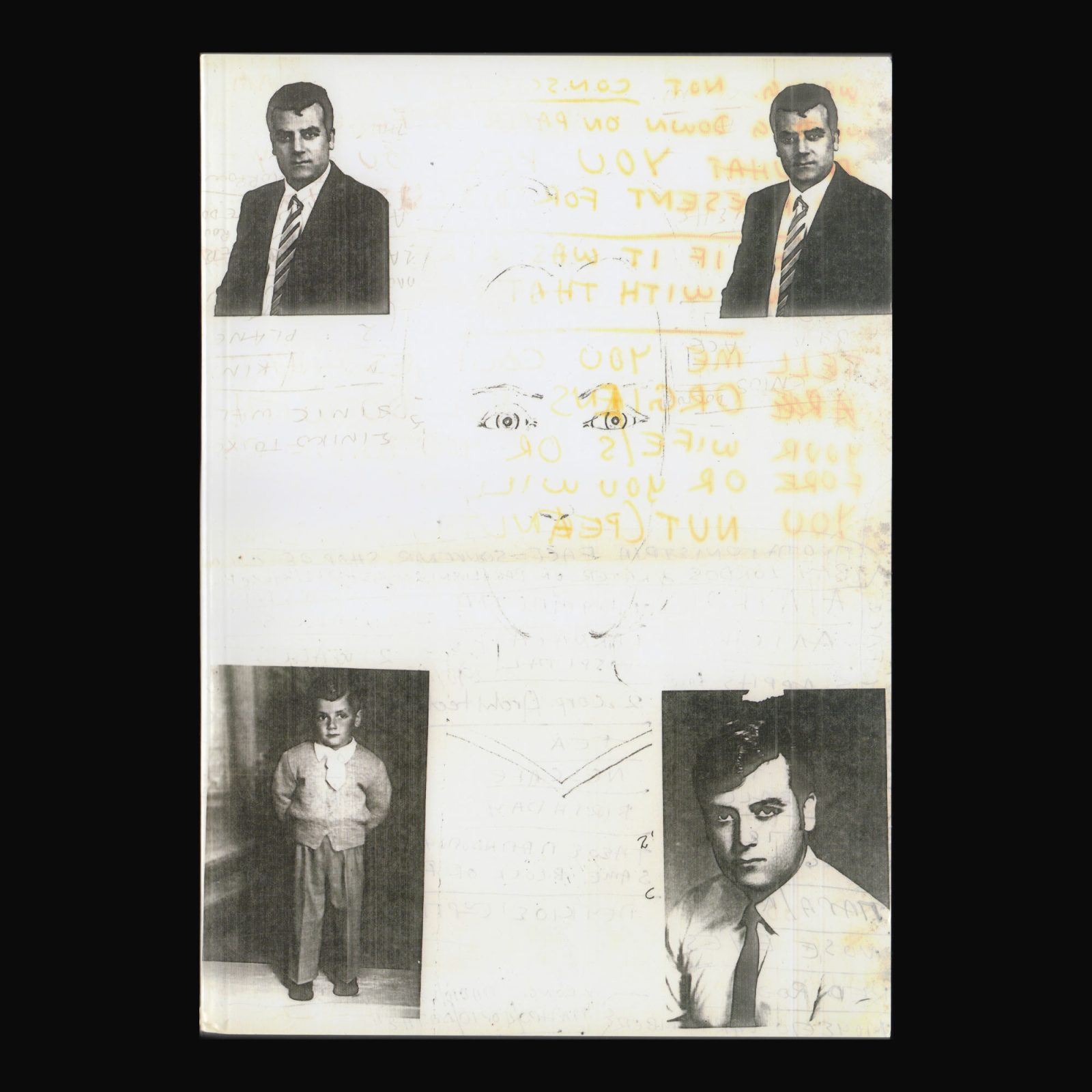
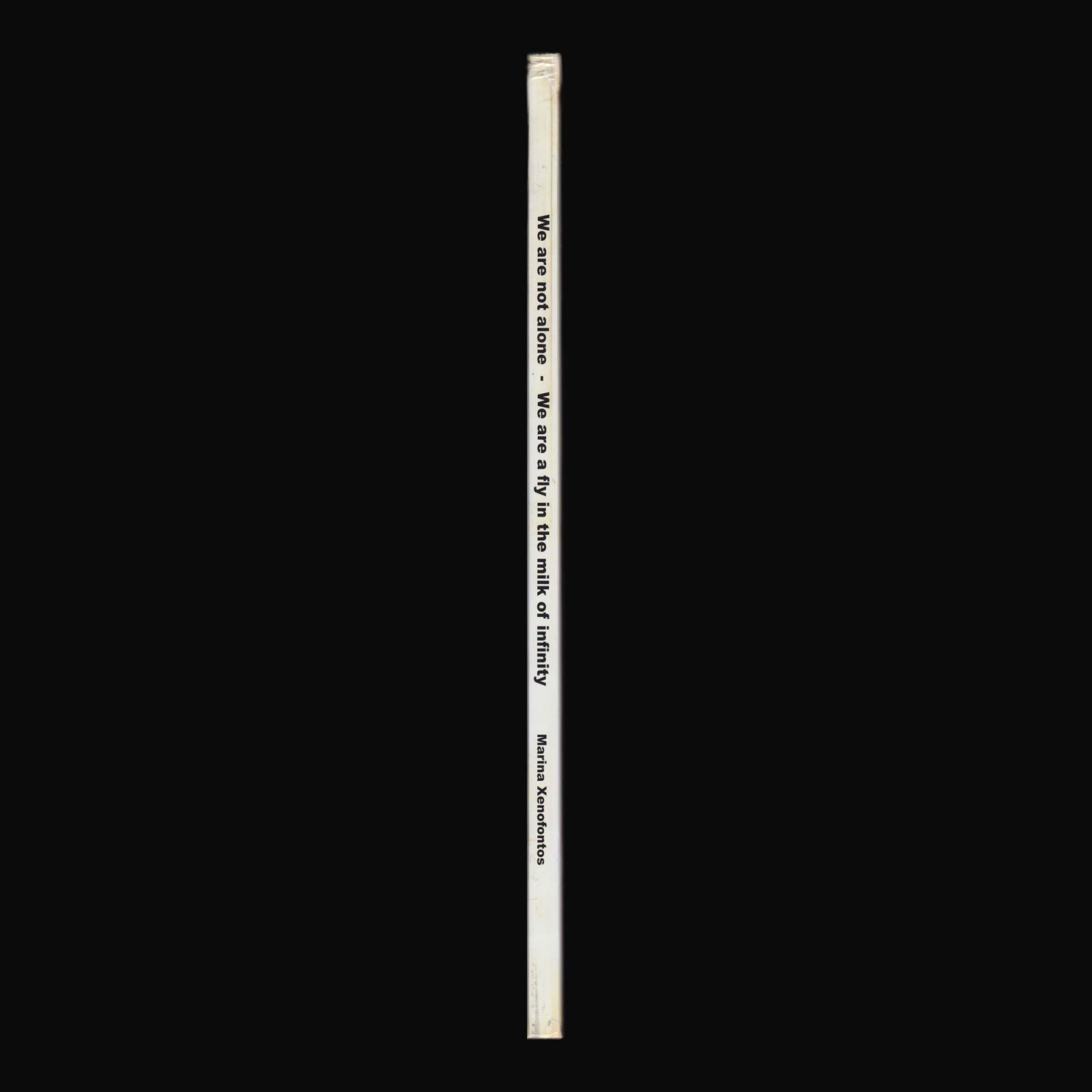
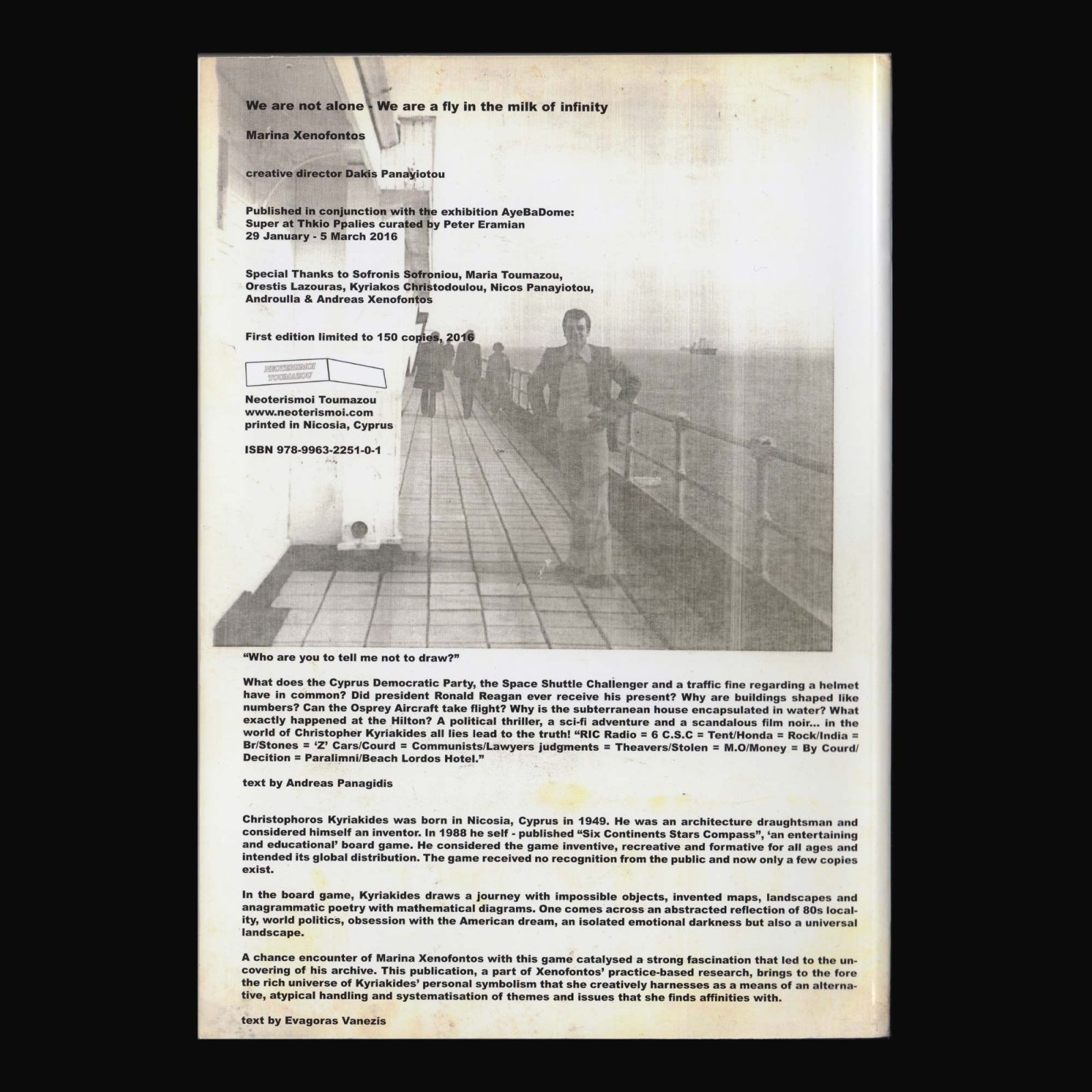
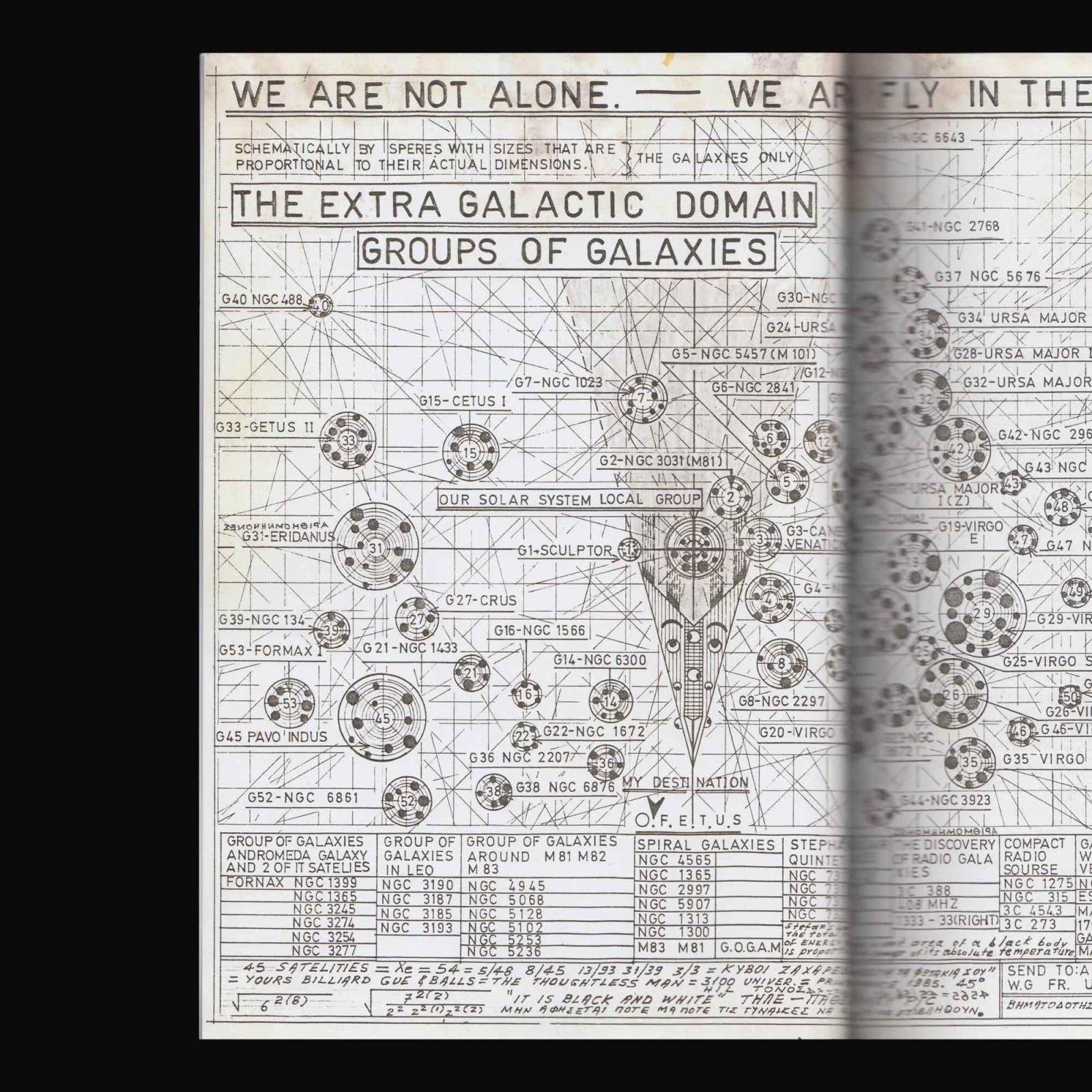
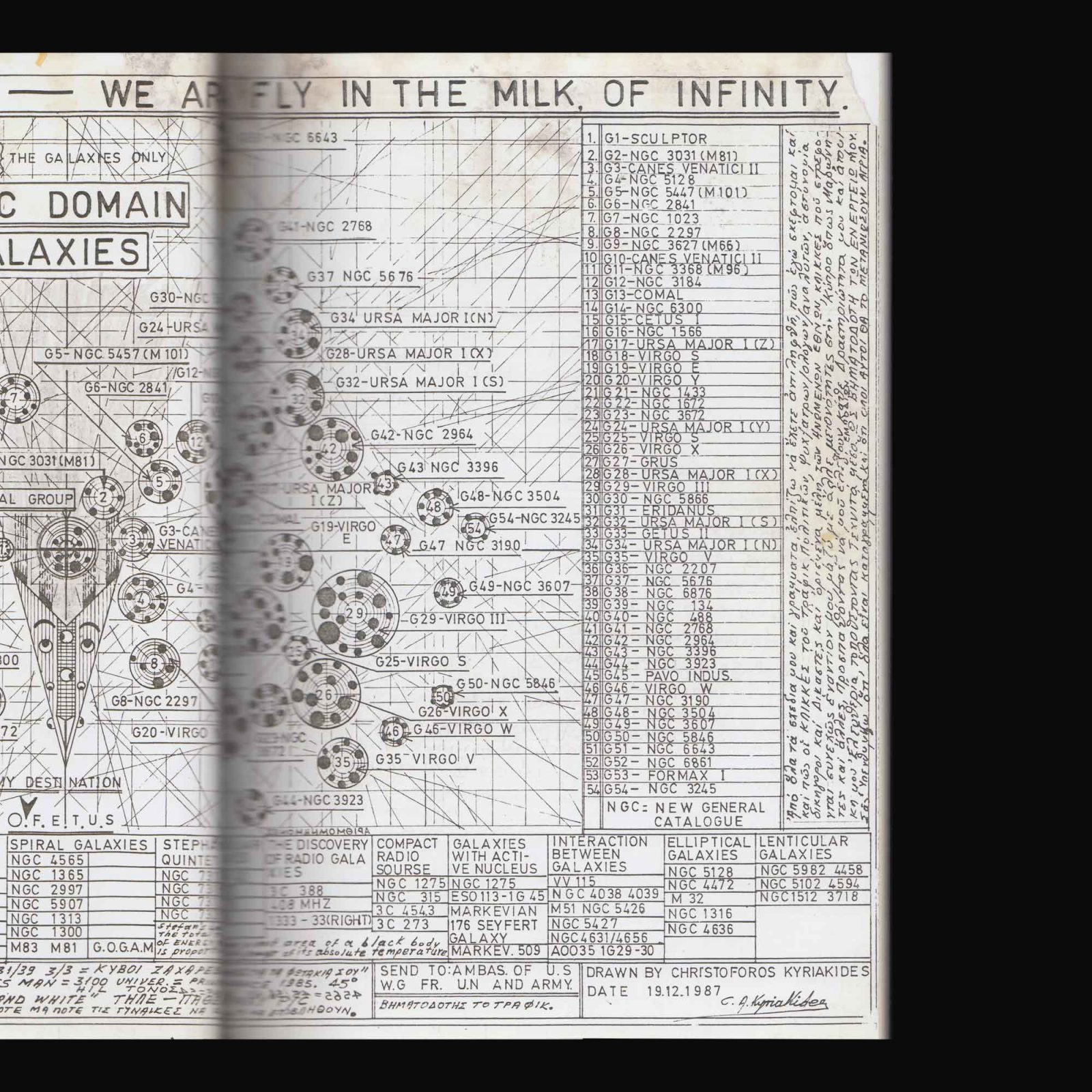
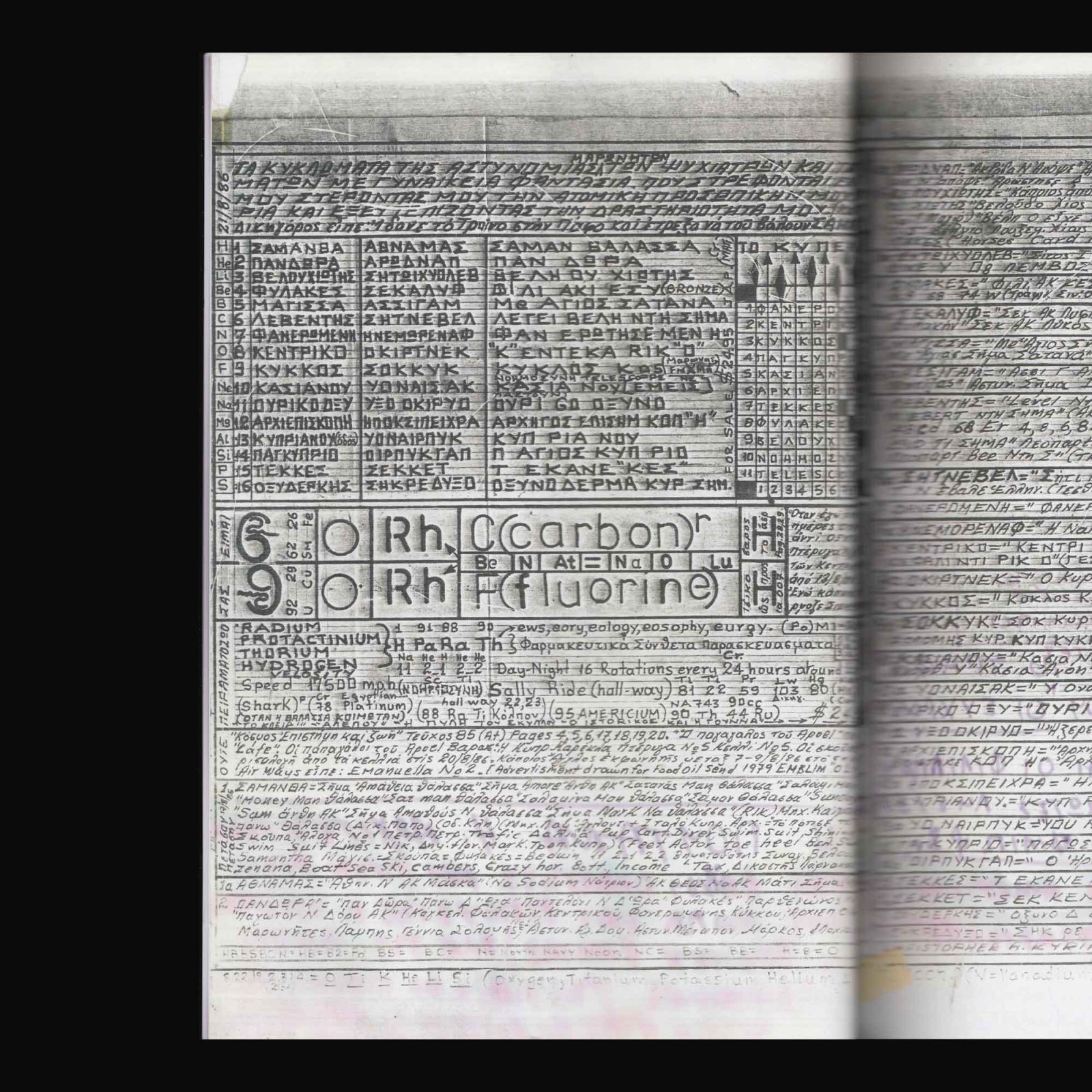
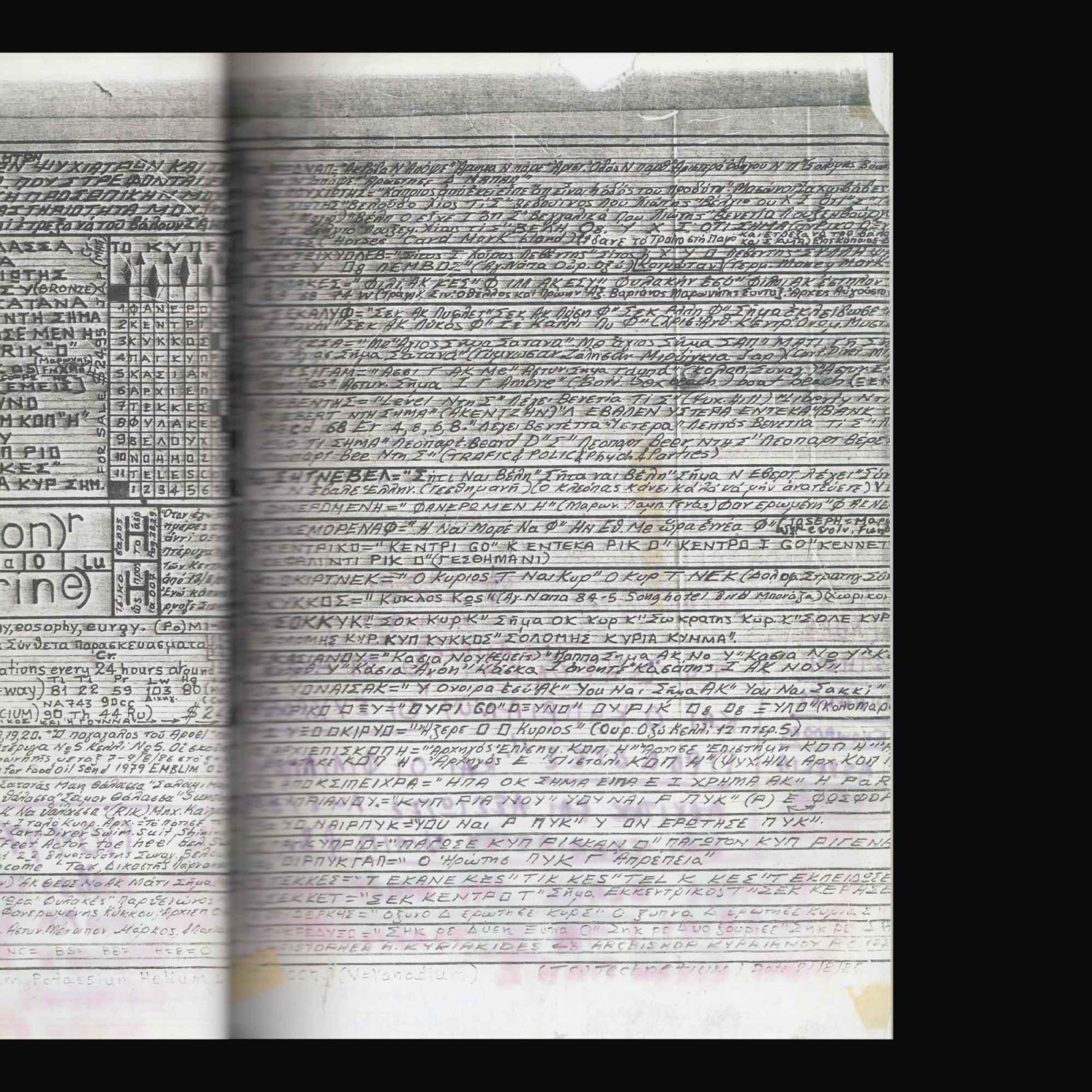
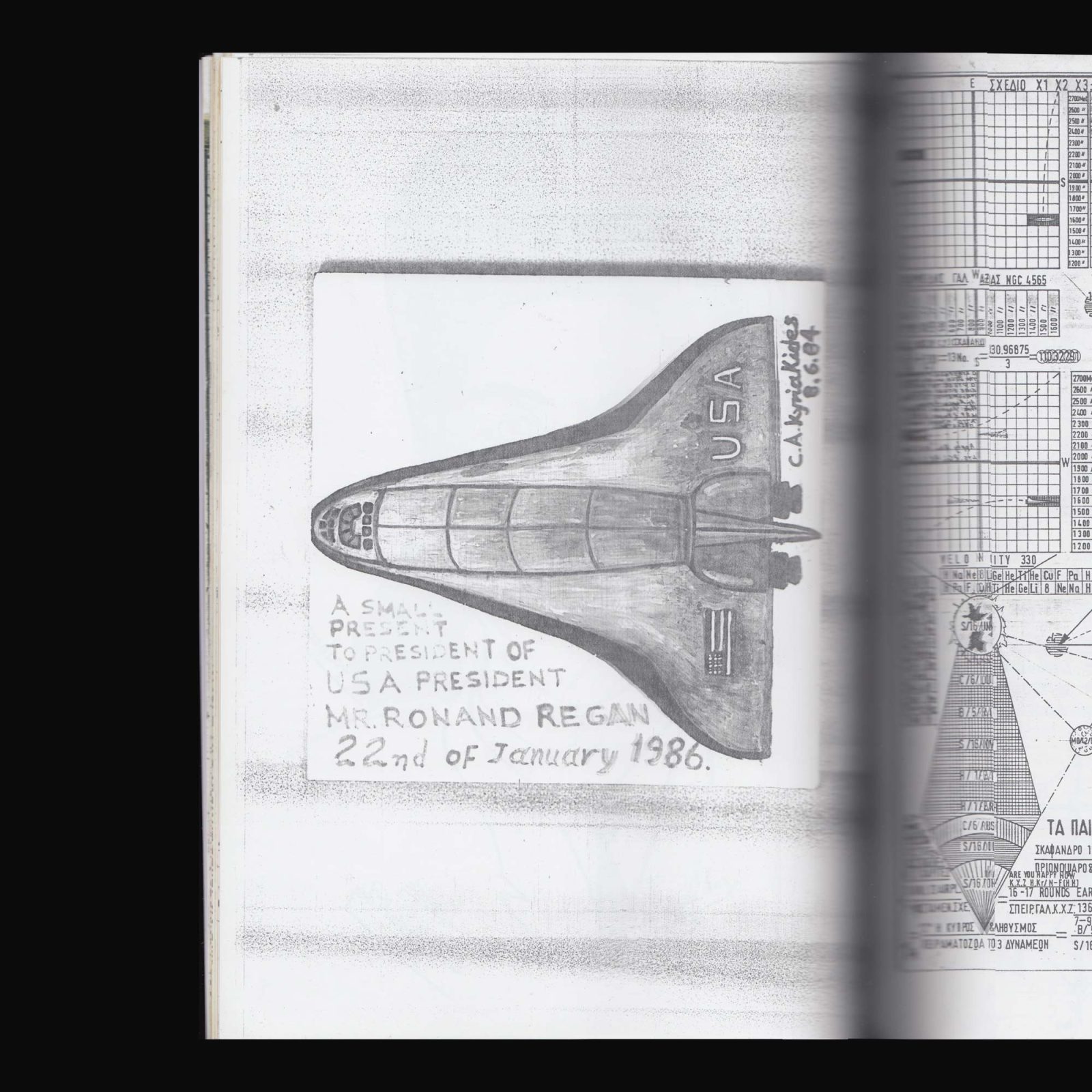
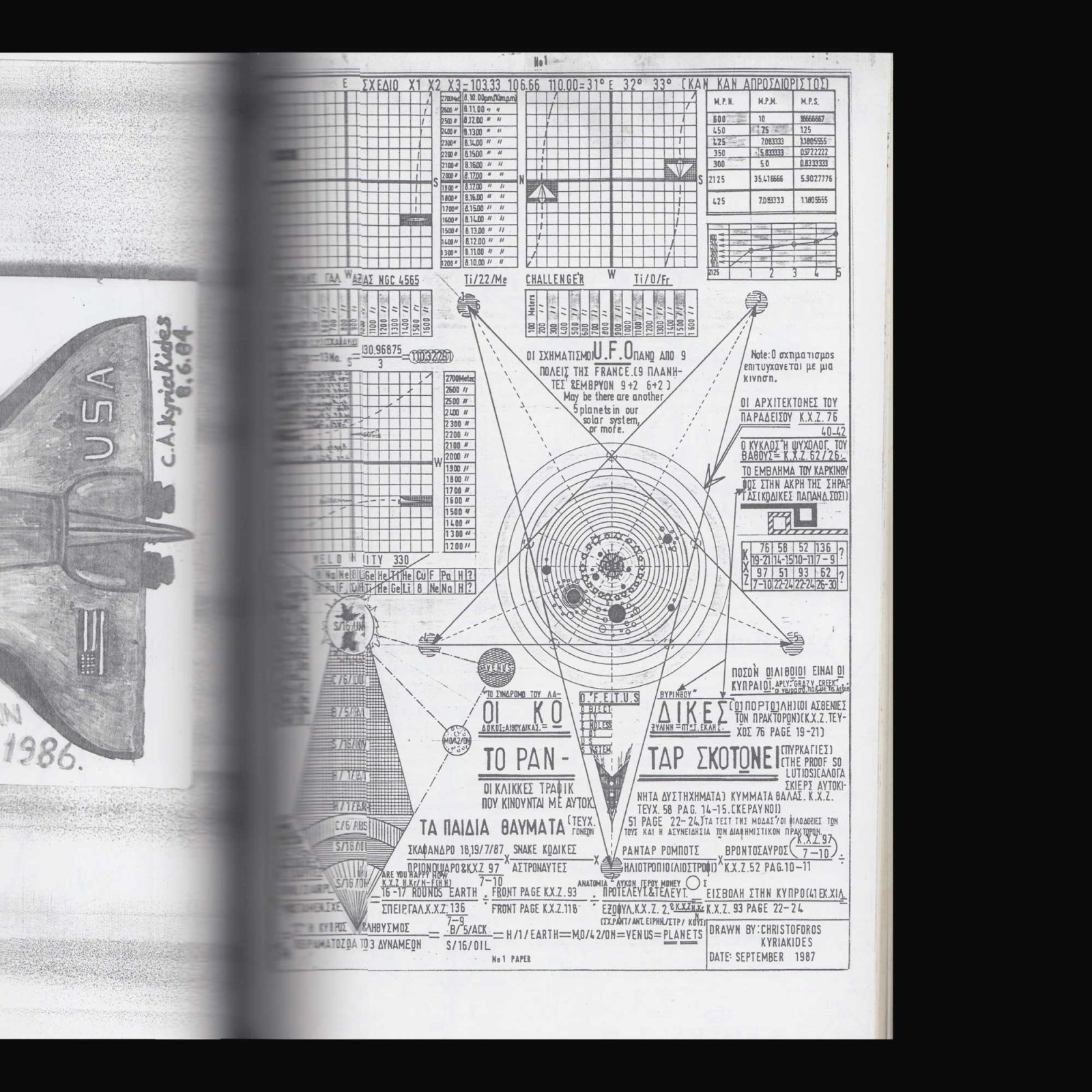
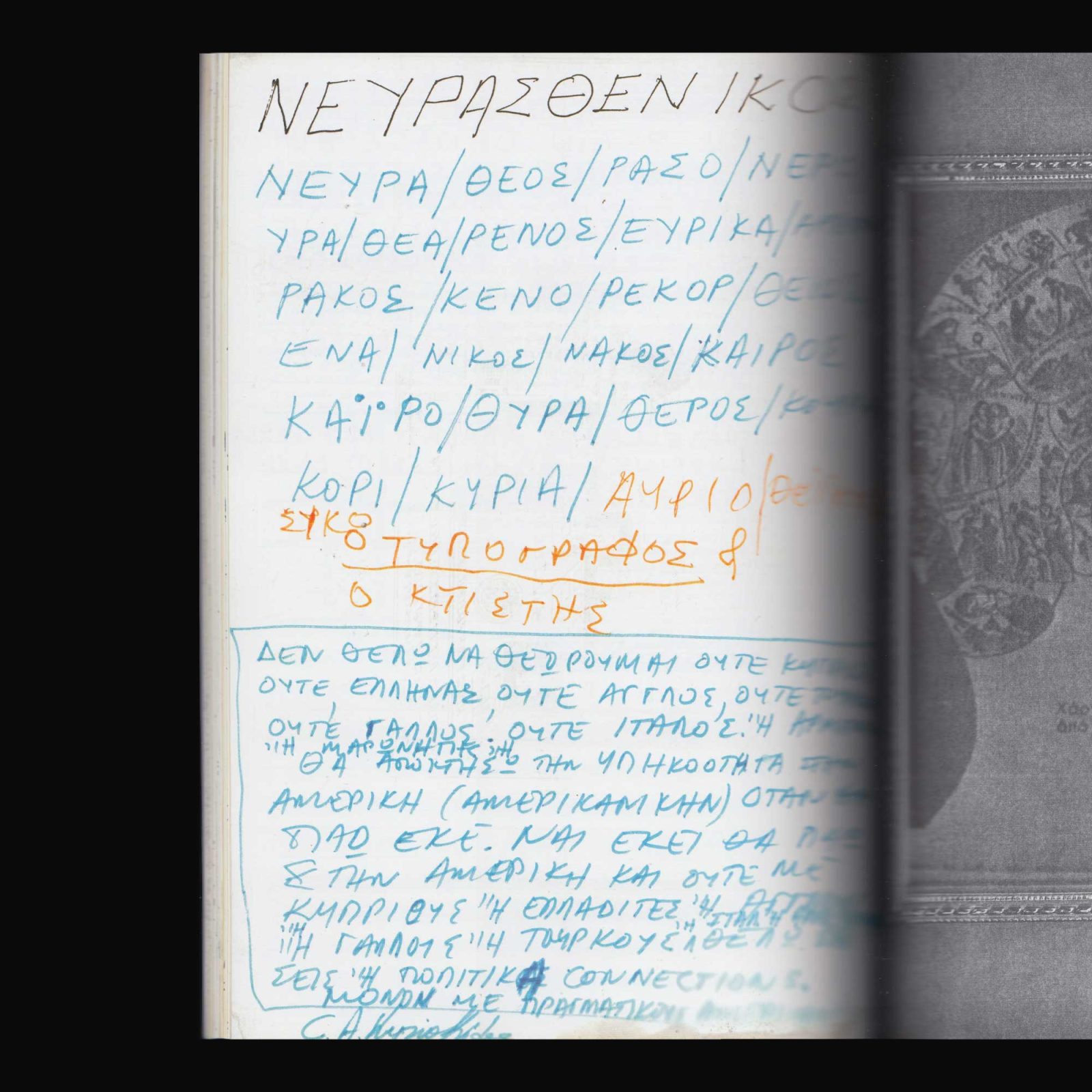
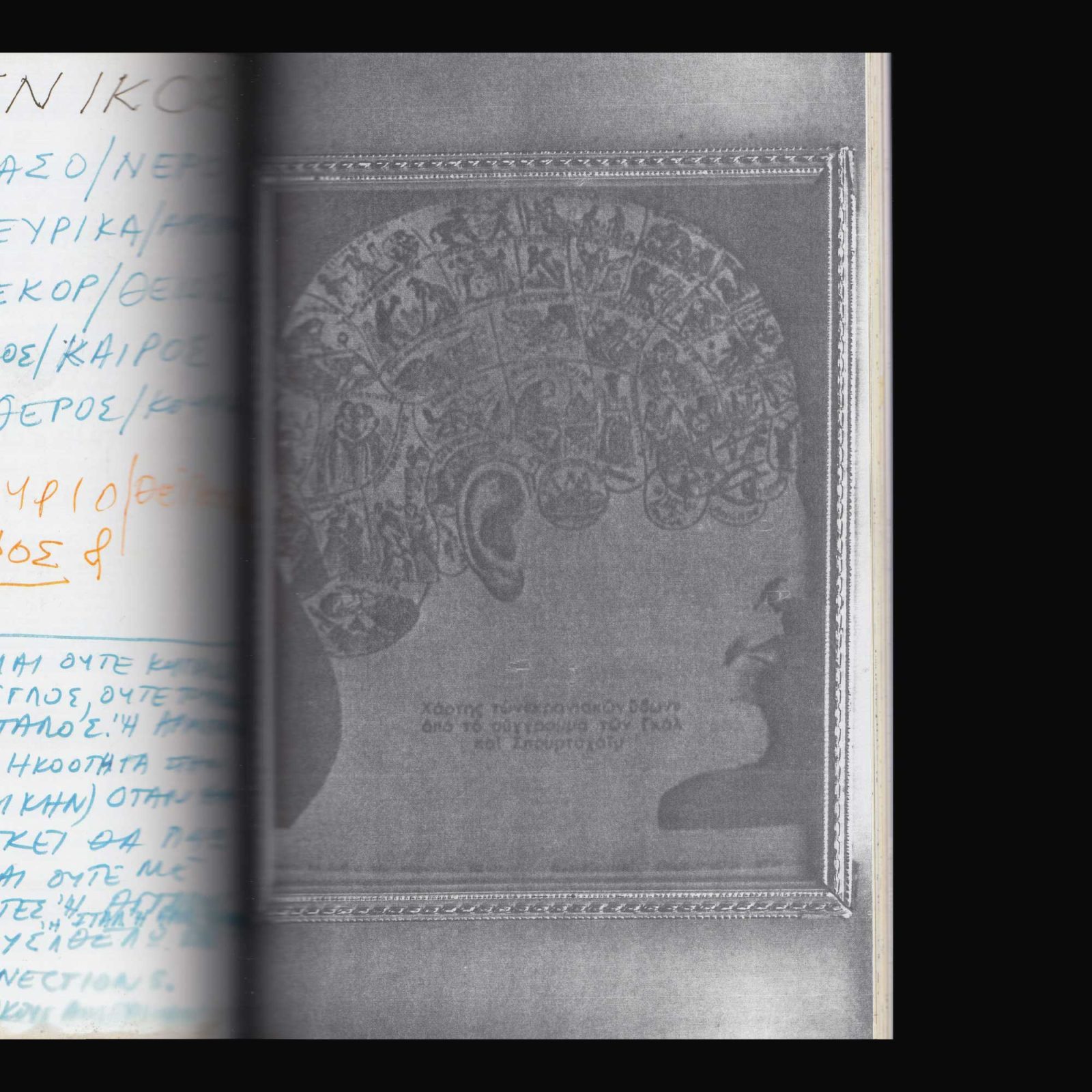
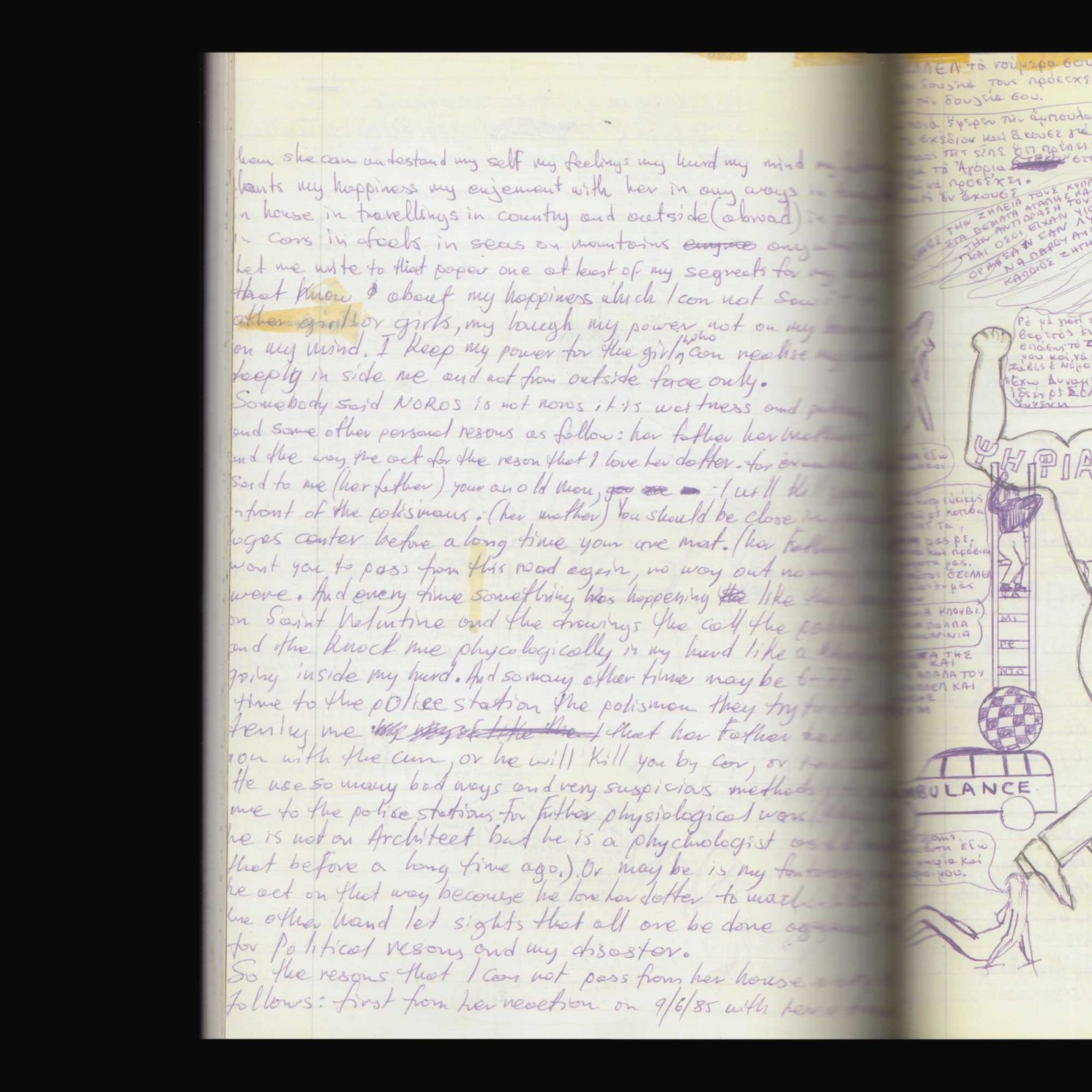
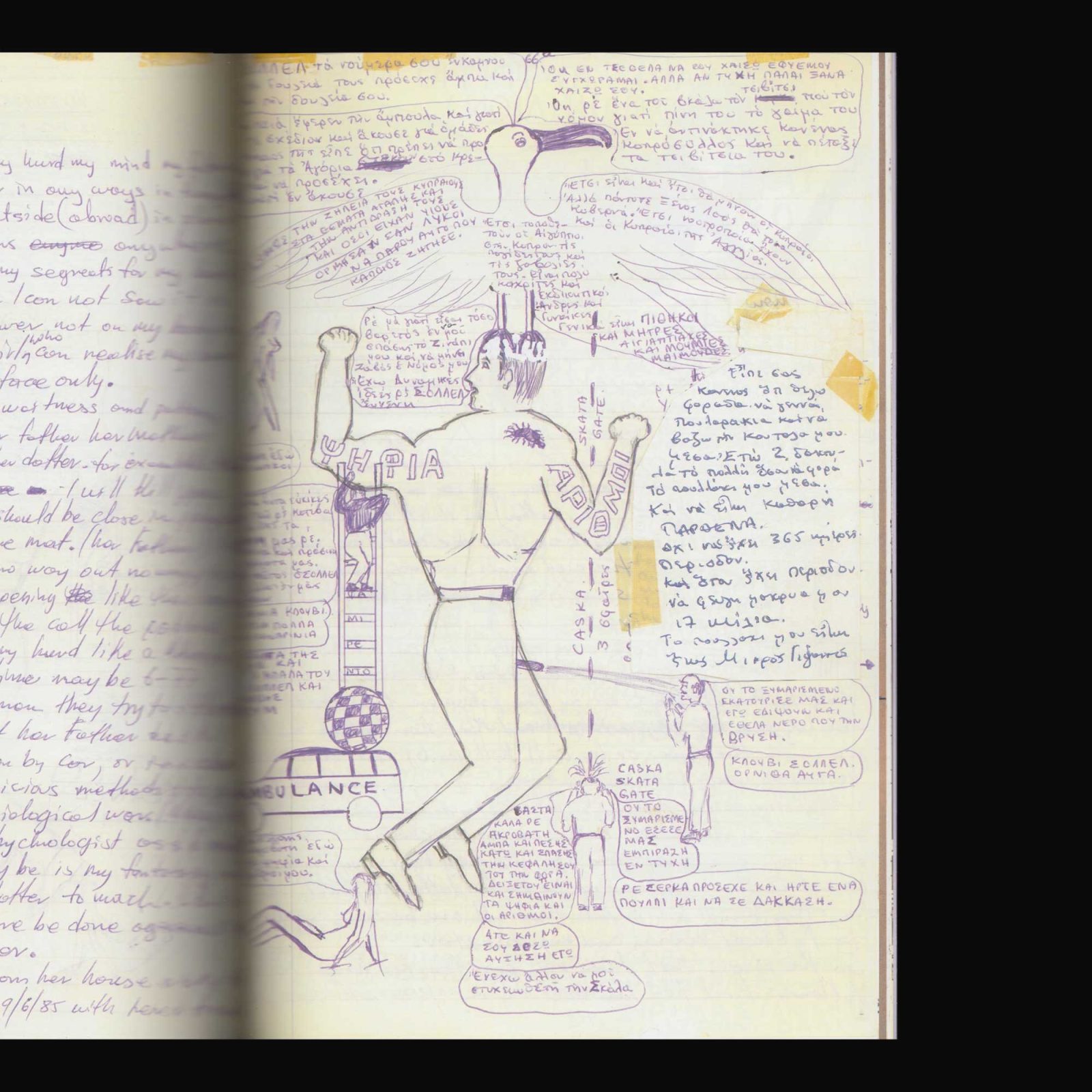
Marina Xenofontos collects and catalogues the musings of an otherwise unknown inventor known as Christophoros Kyriakides. Born in Cyprus in 1949, he invented a board game called Six Continents Stars Compass that received little recognition and was printed in a very small number of editions. By chance encounter, Xenofontos stumbled across the game, and thus started a practice-based research into the inventor’s impressive archive—documented here in photocopies of complex scribbles, diagrams and drawings. Edition of 150.